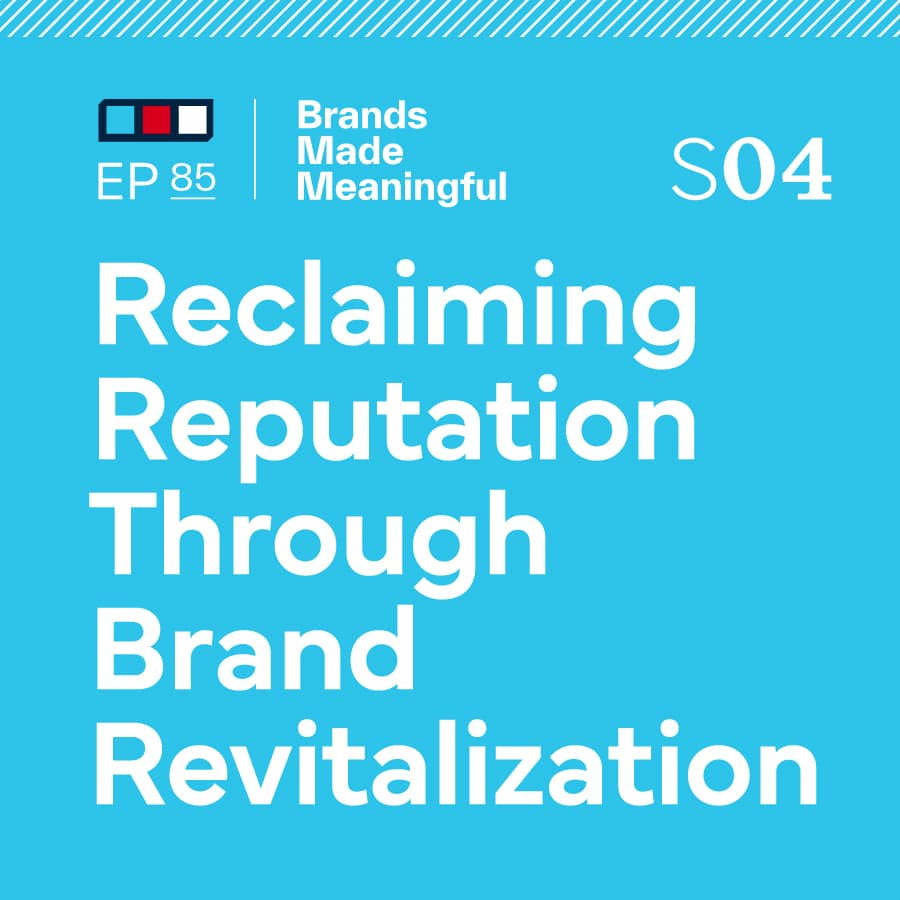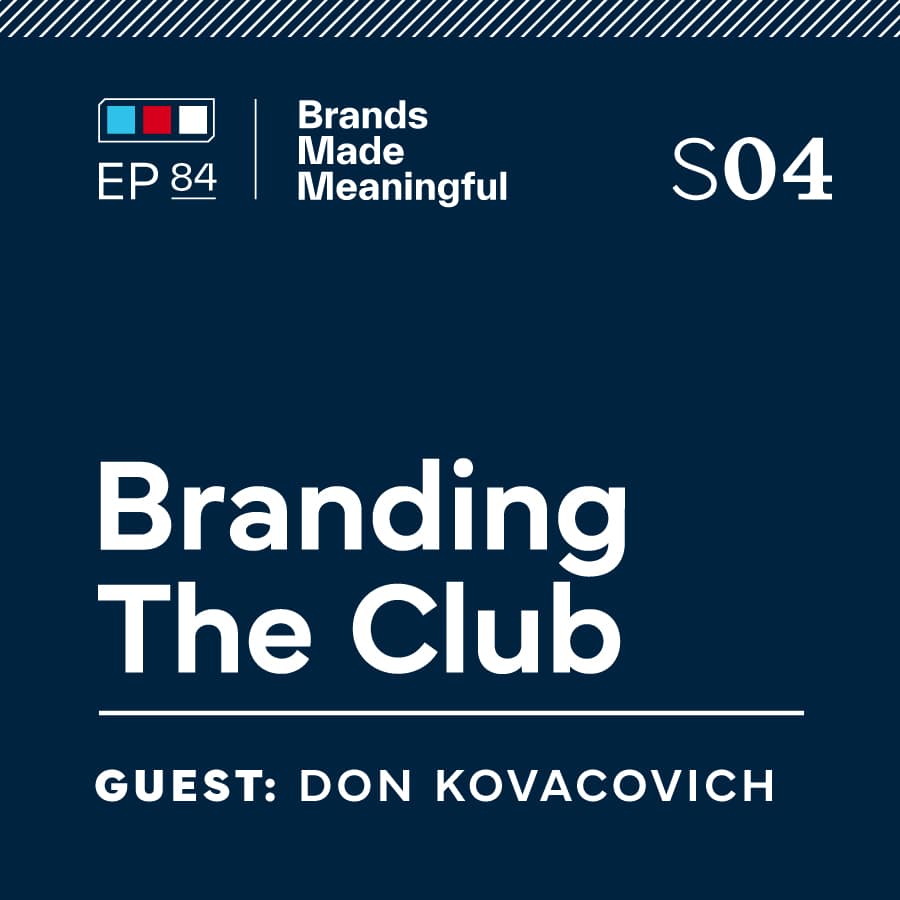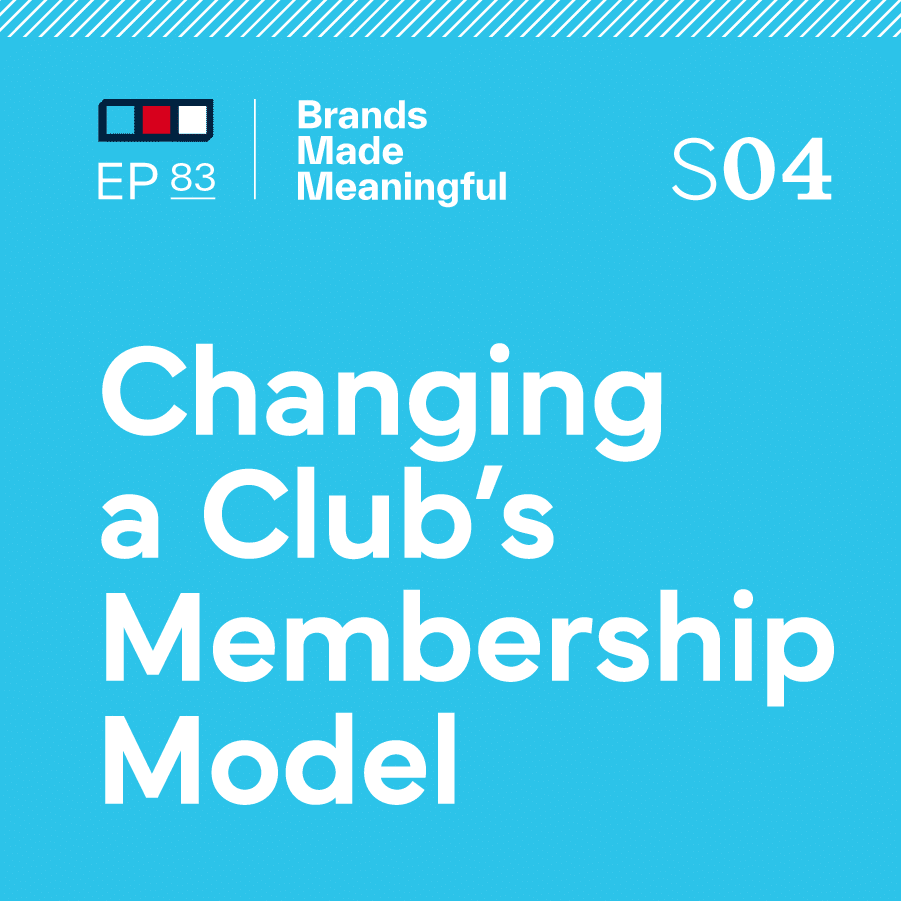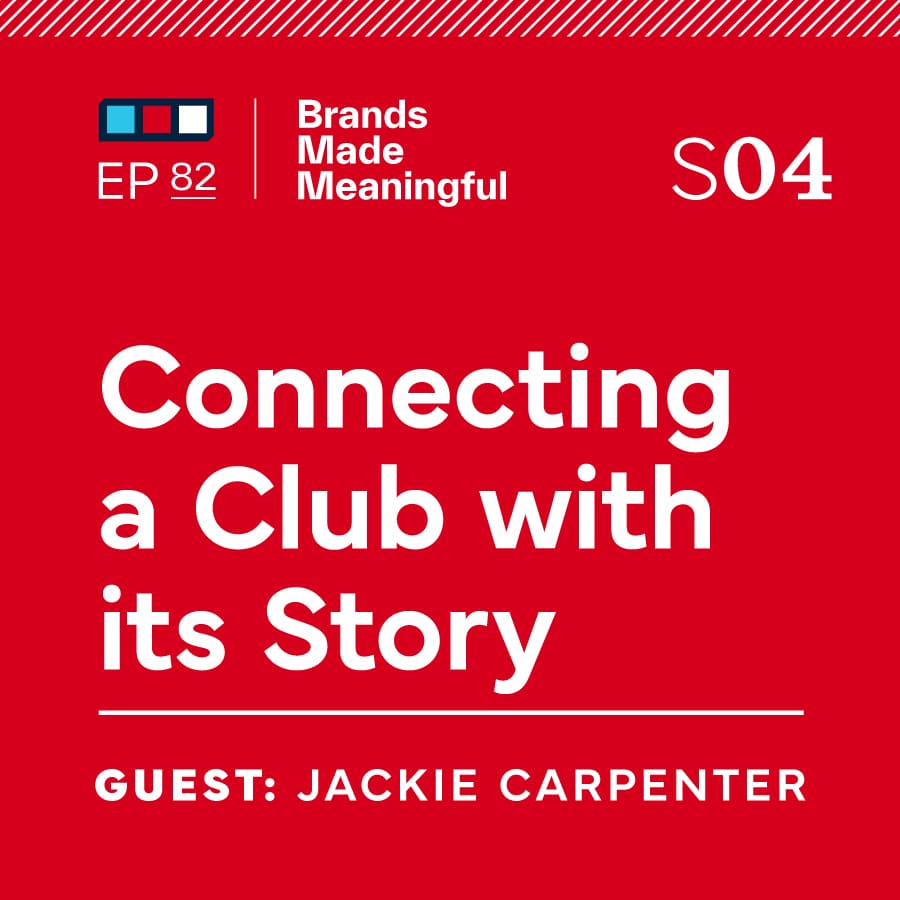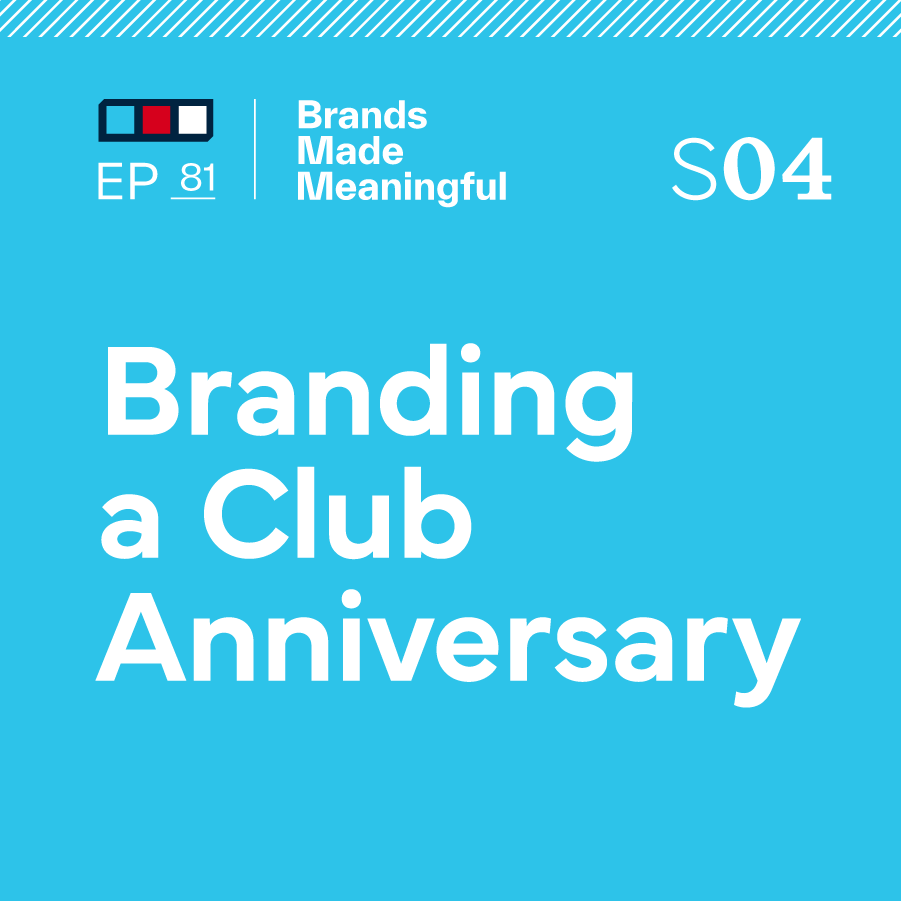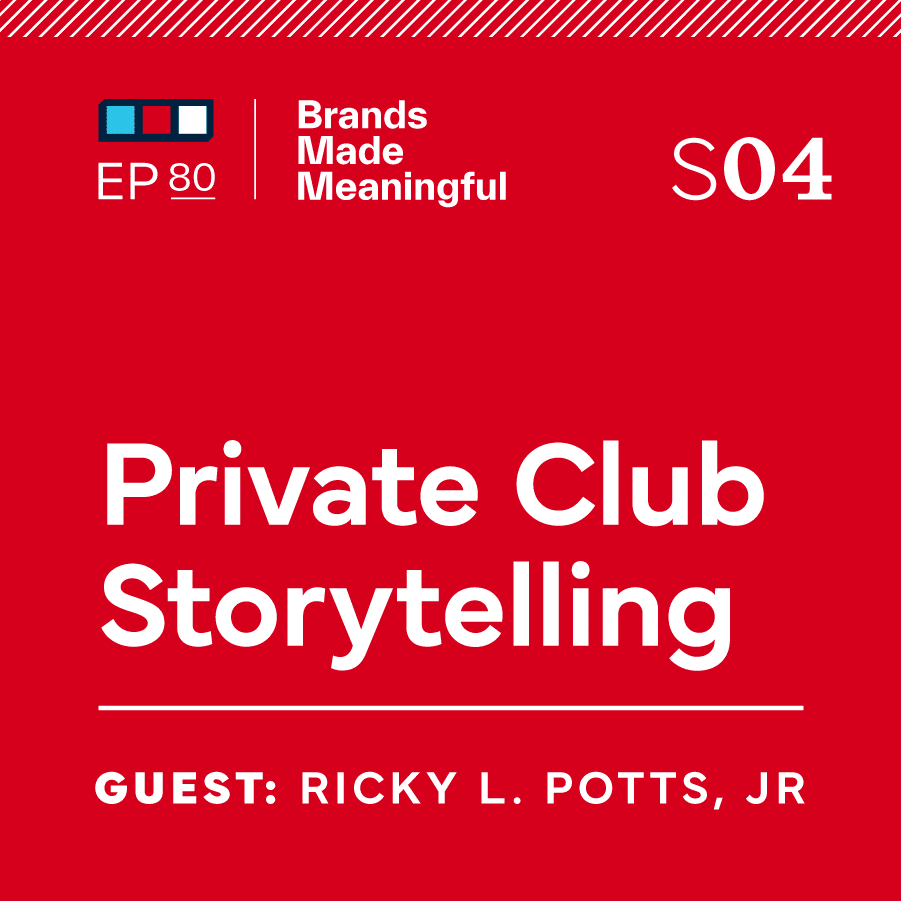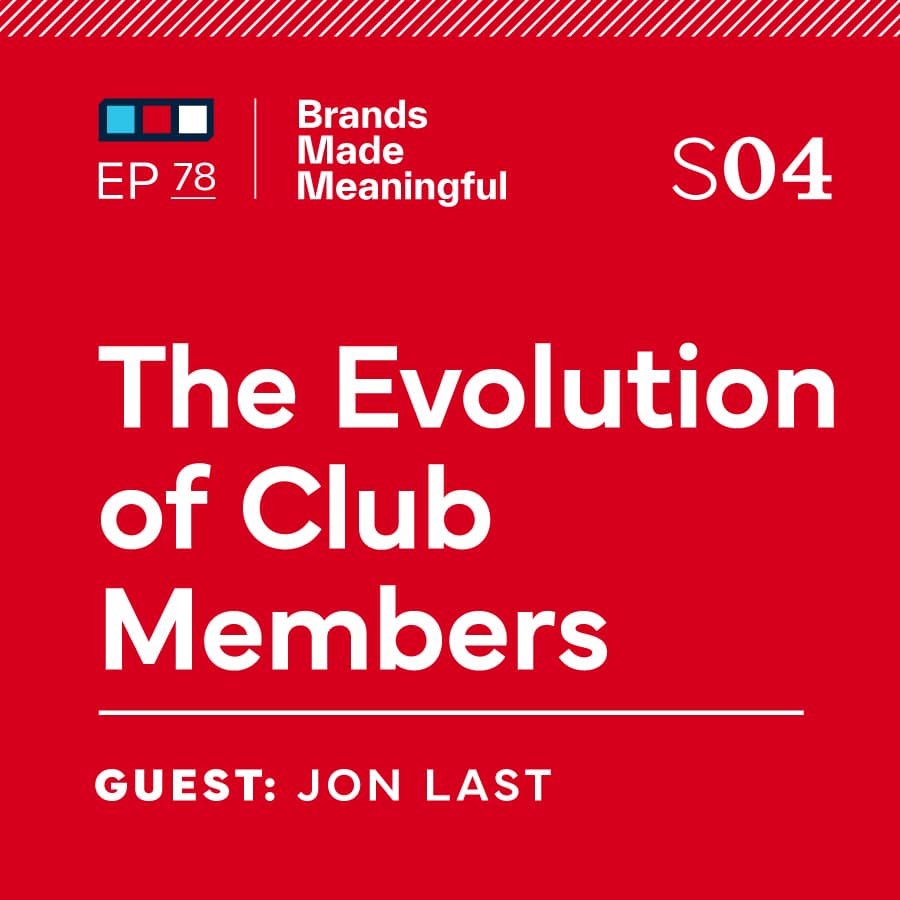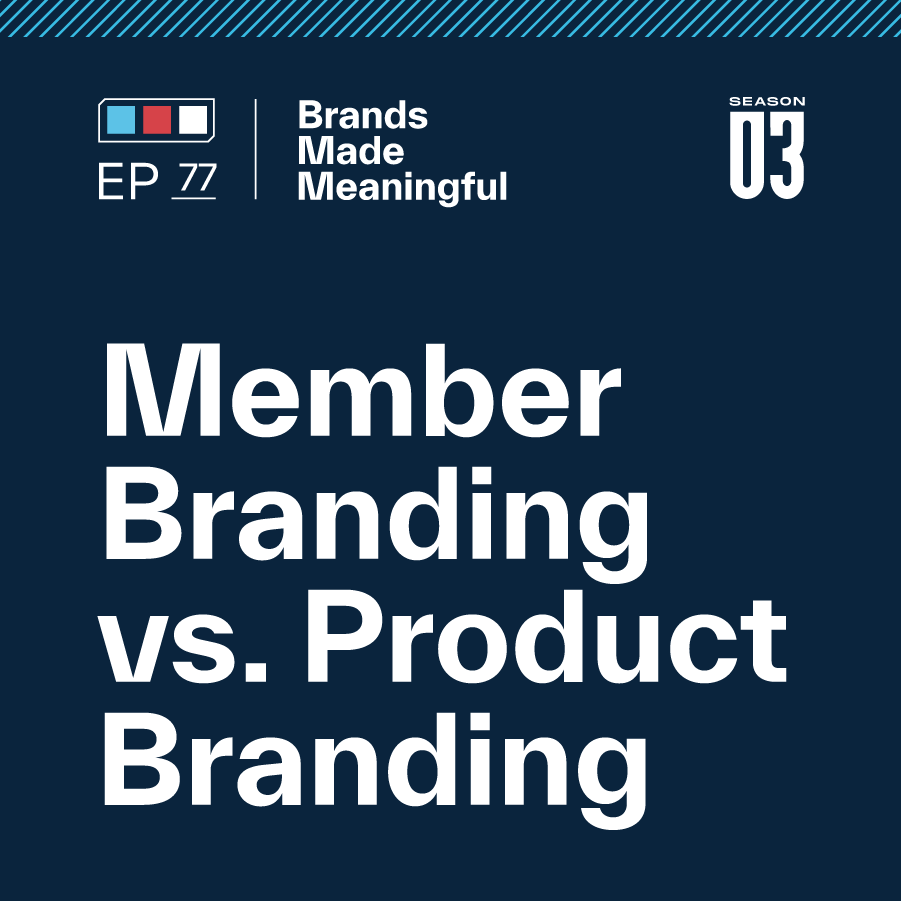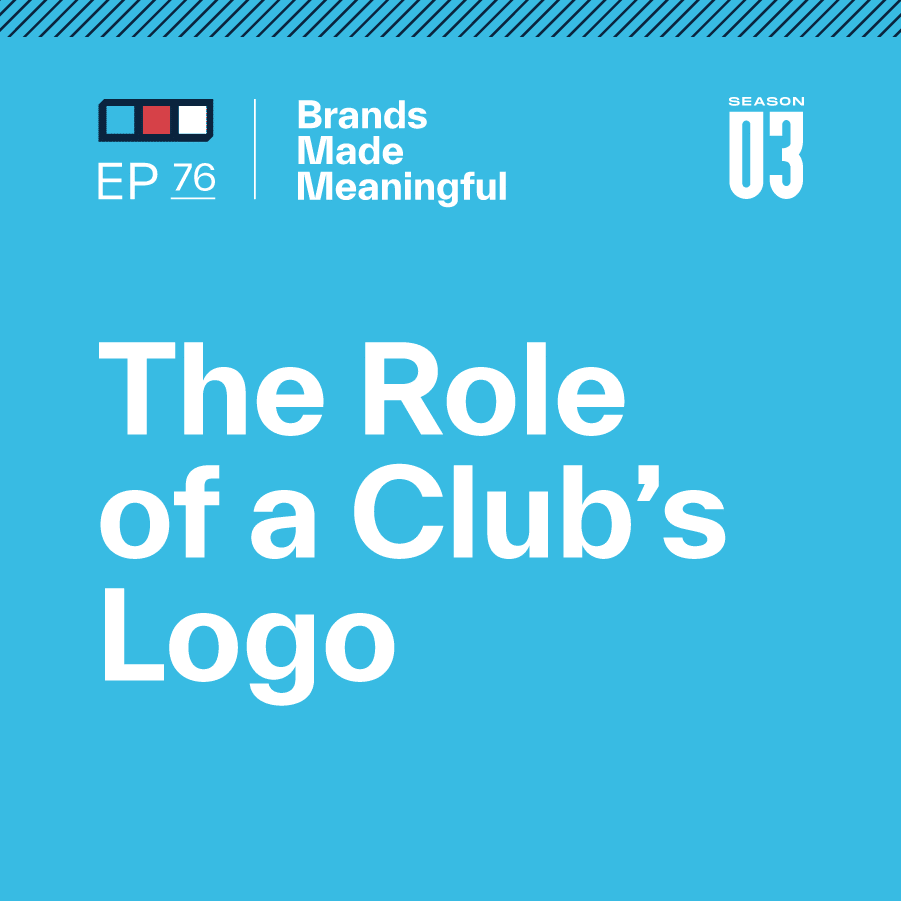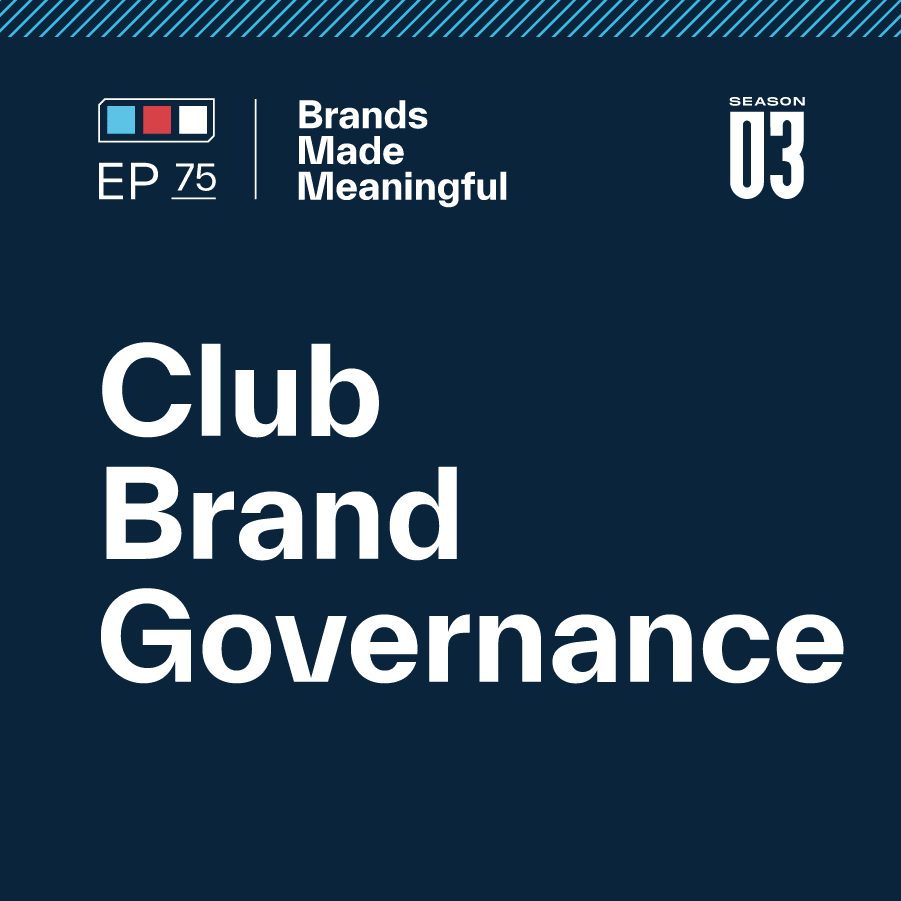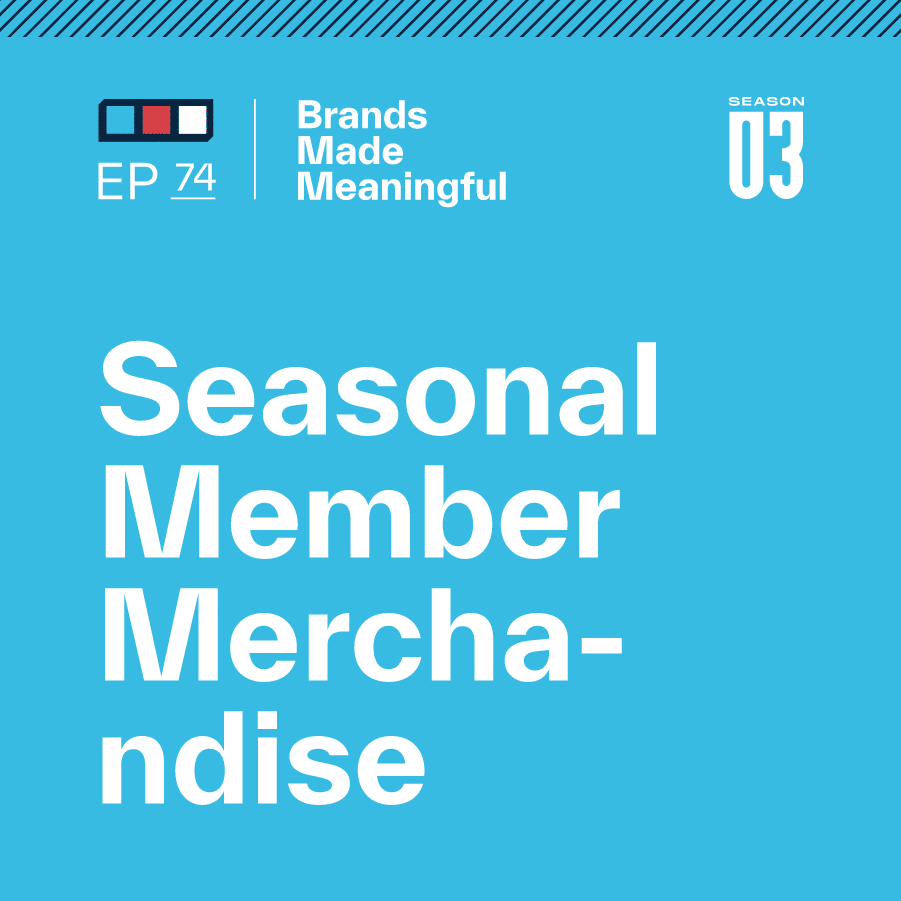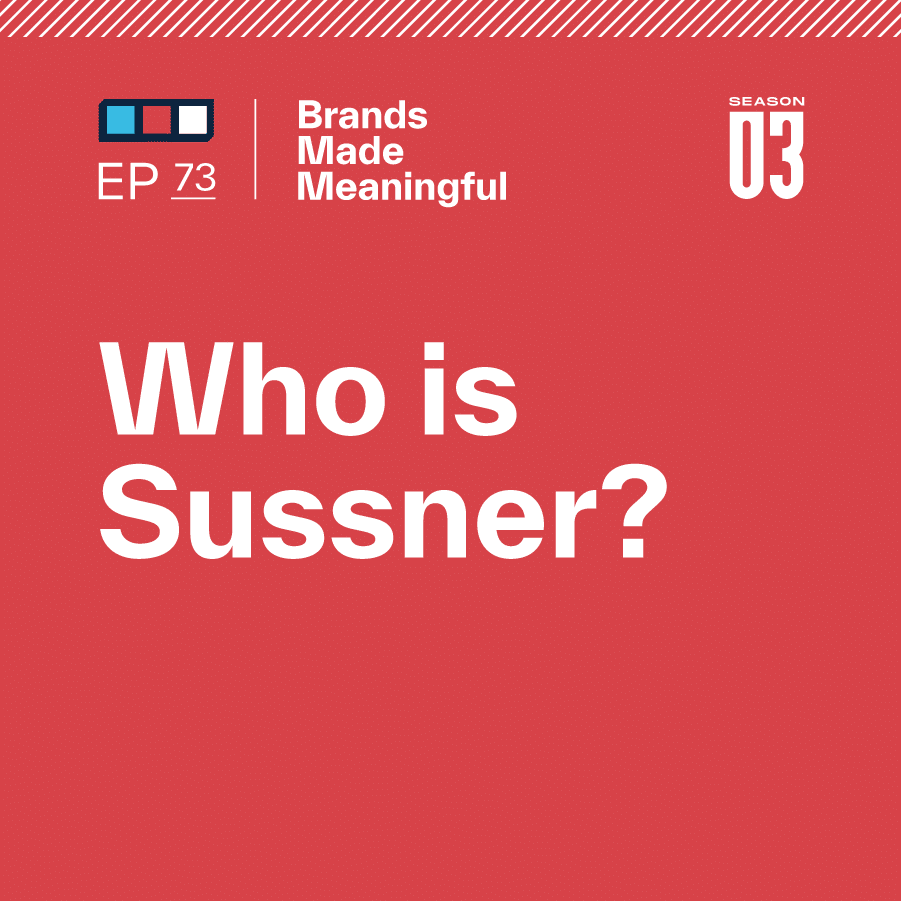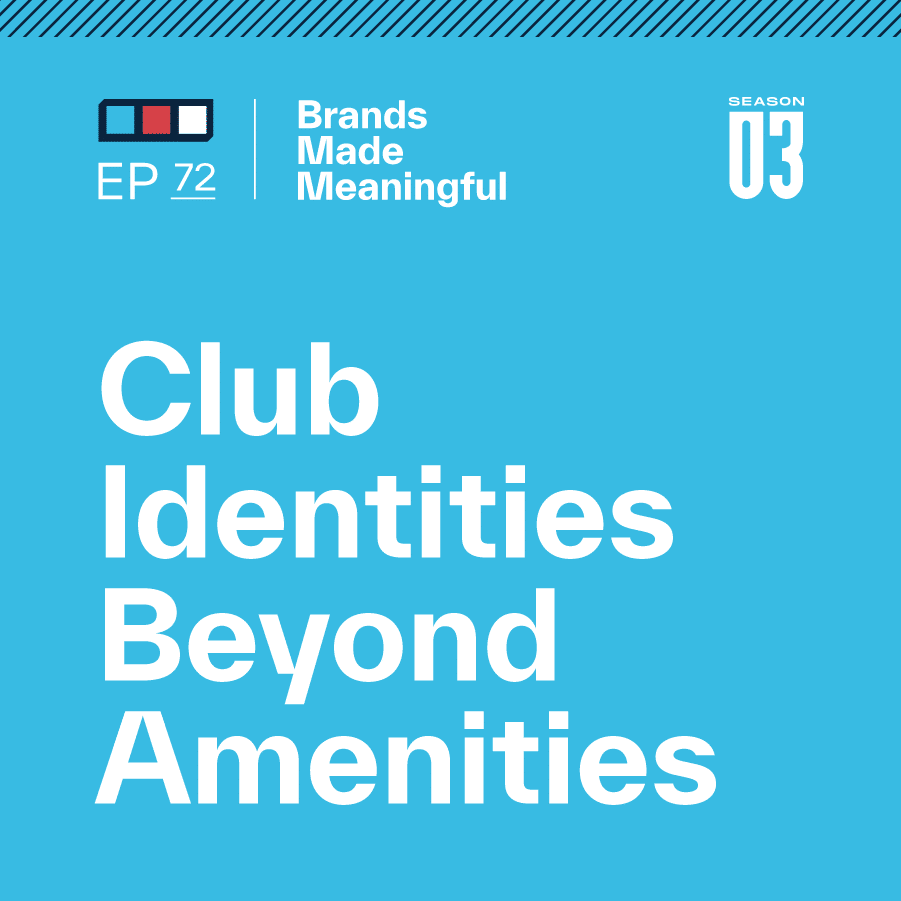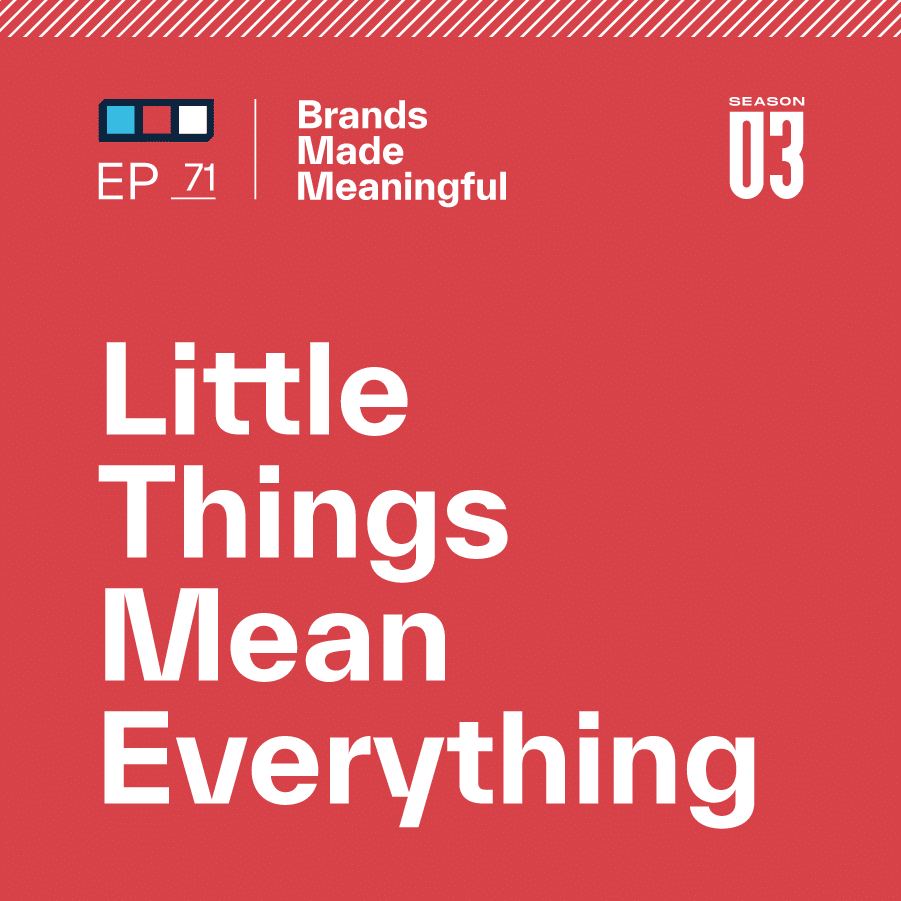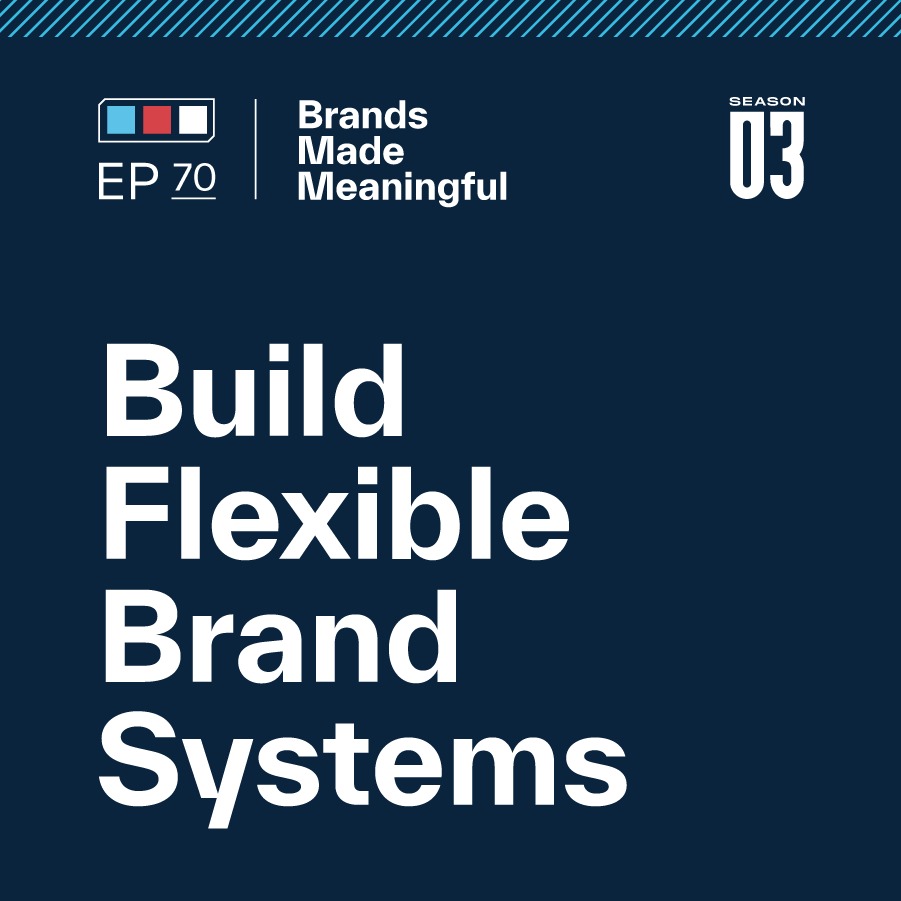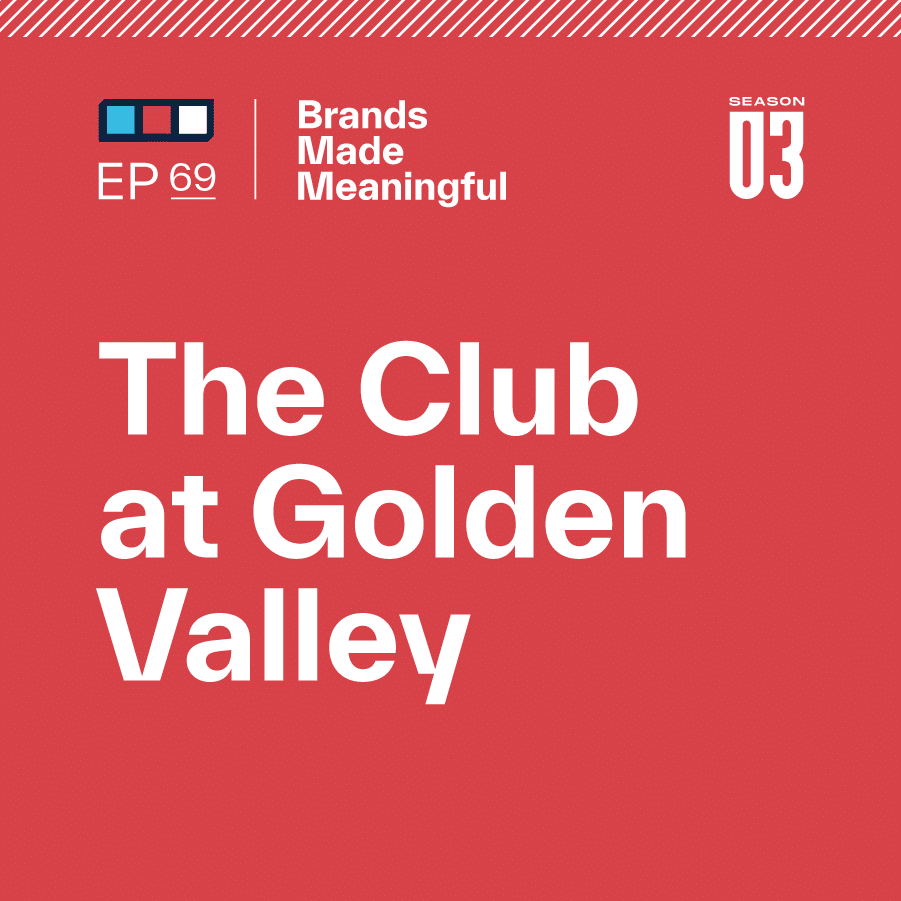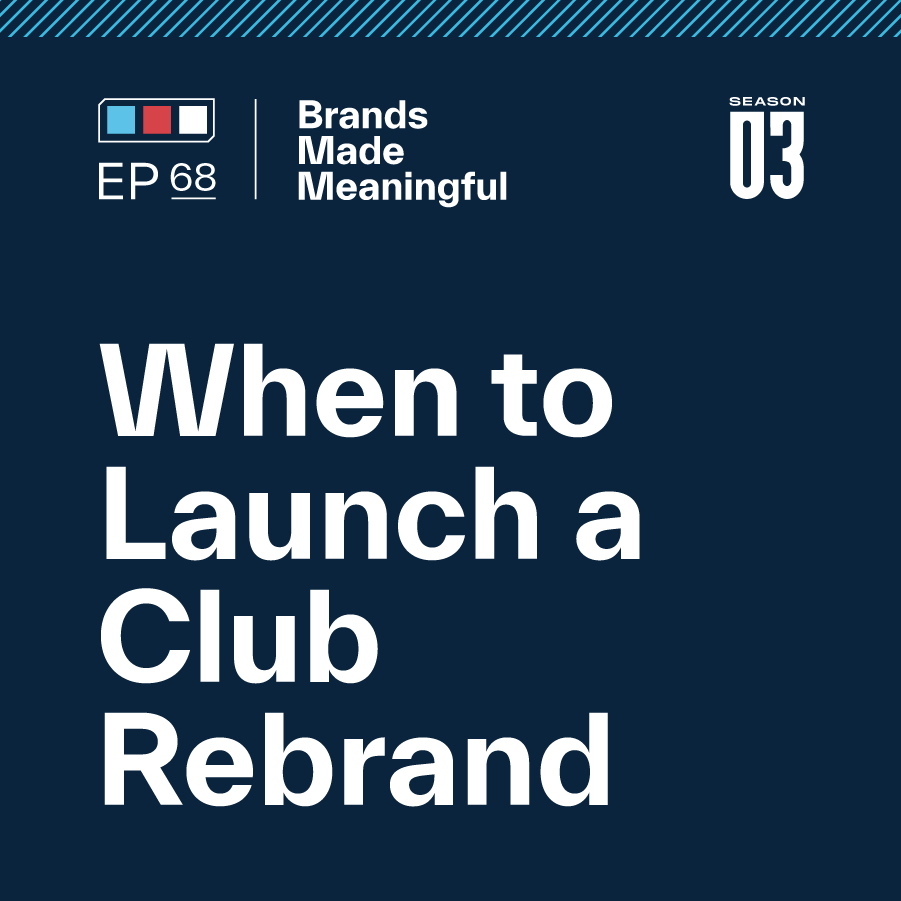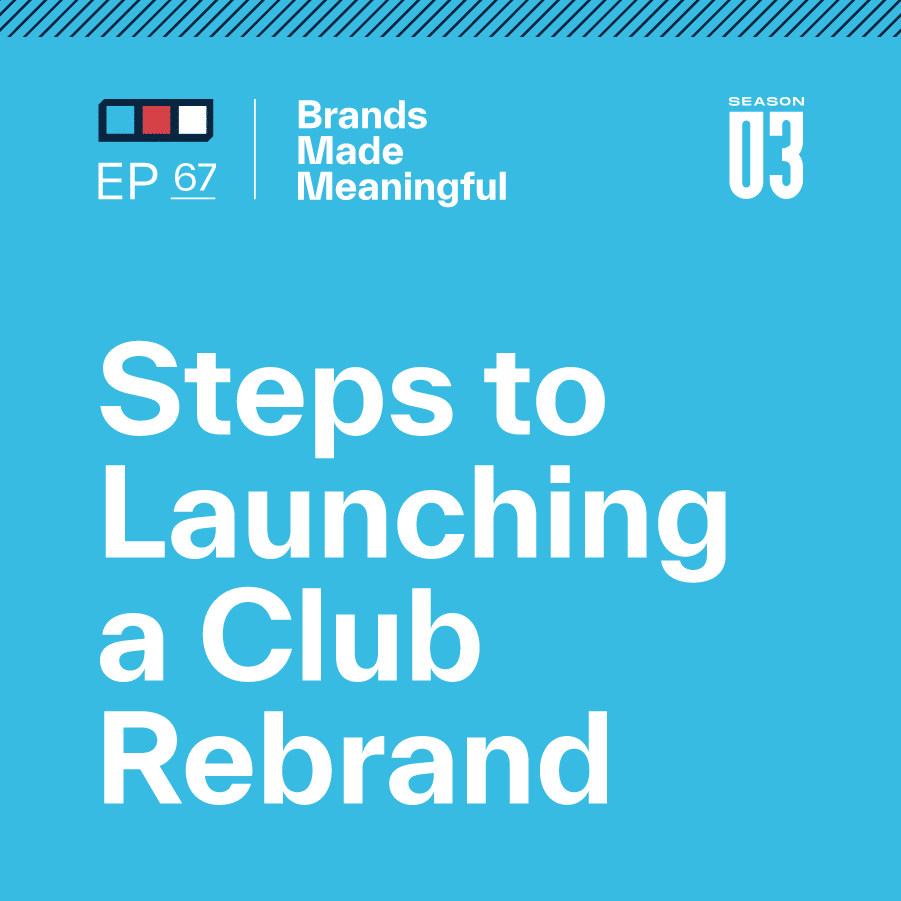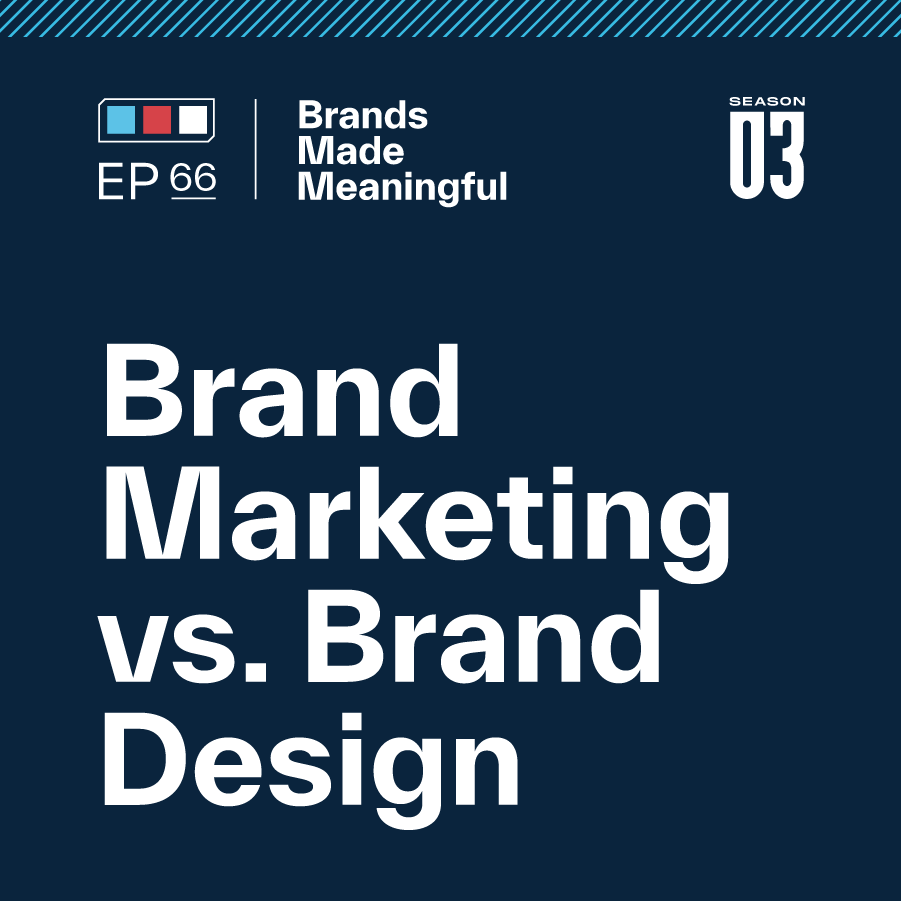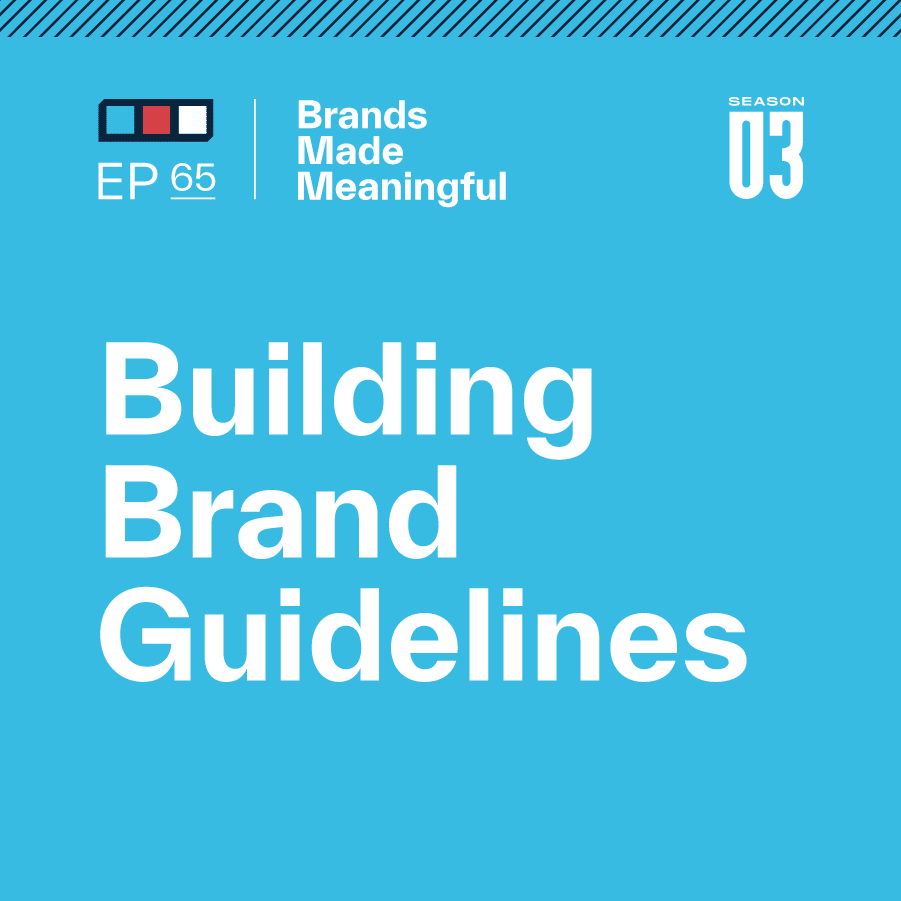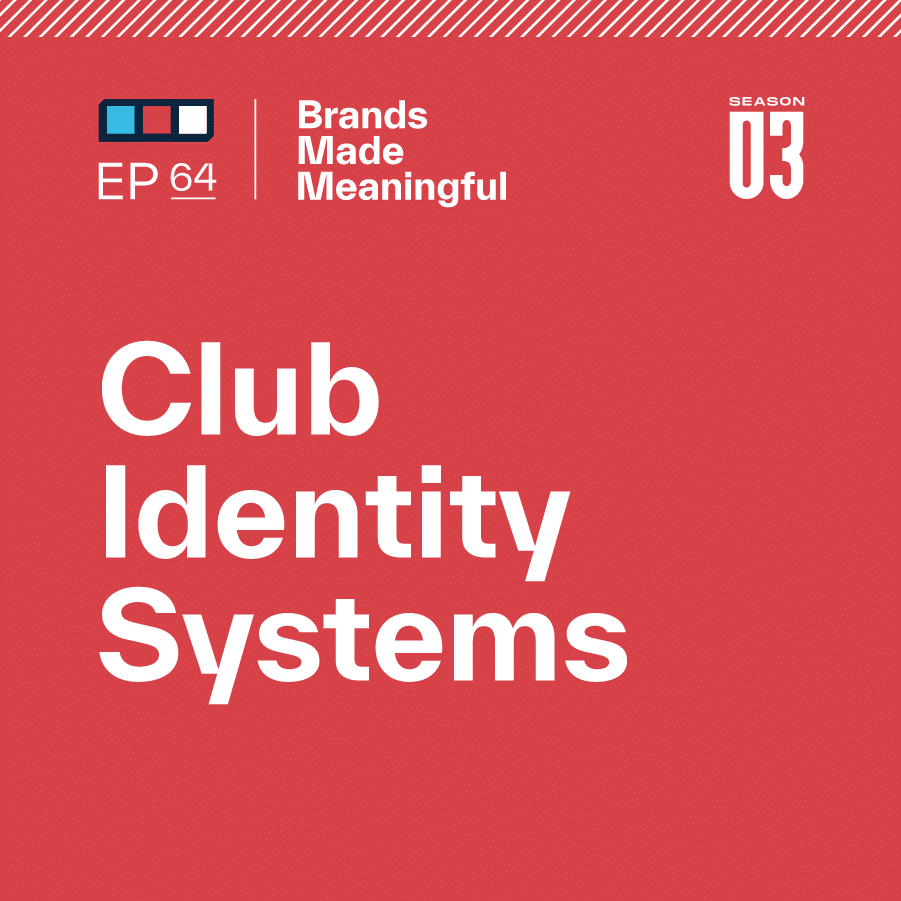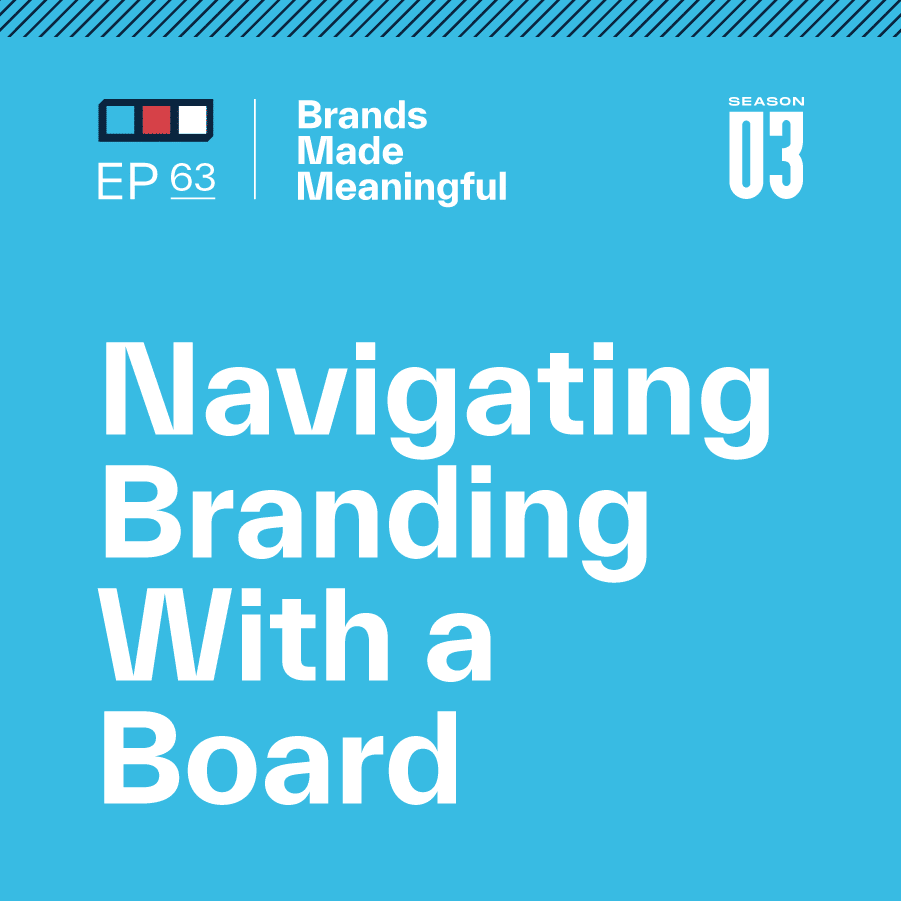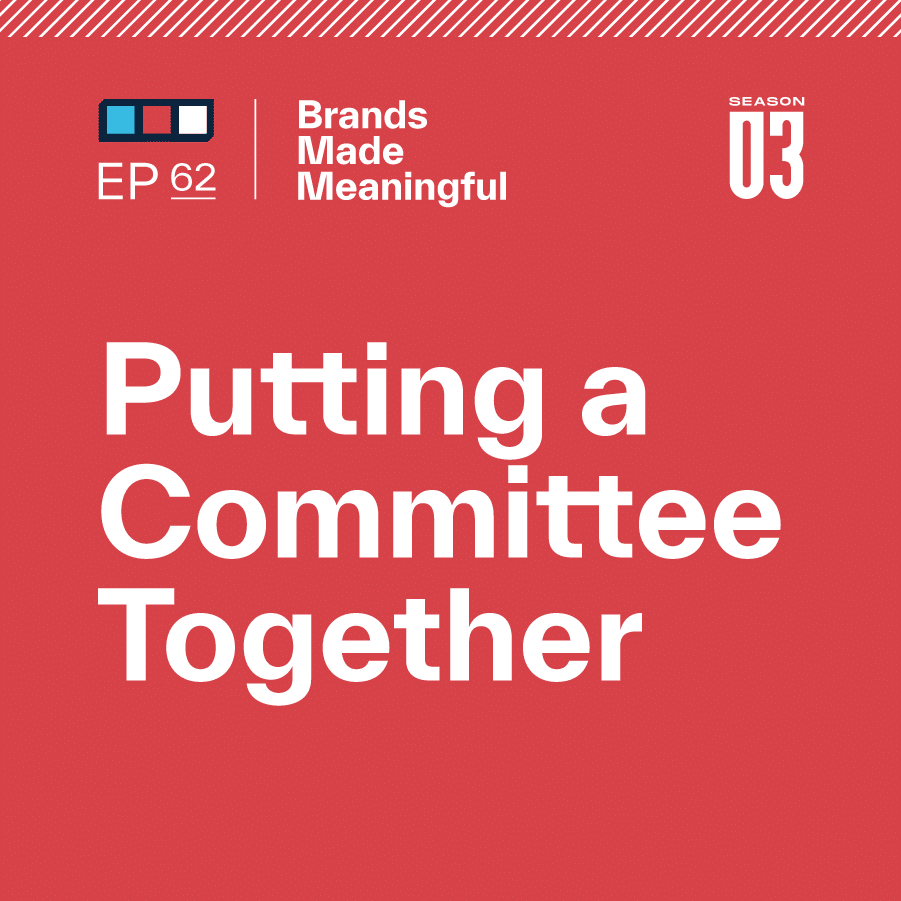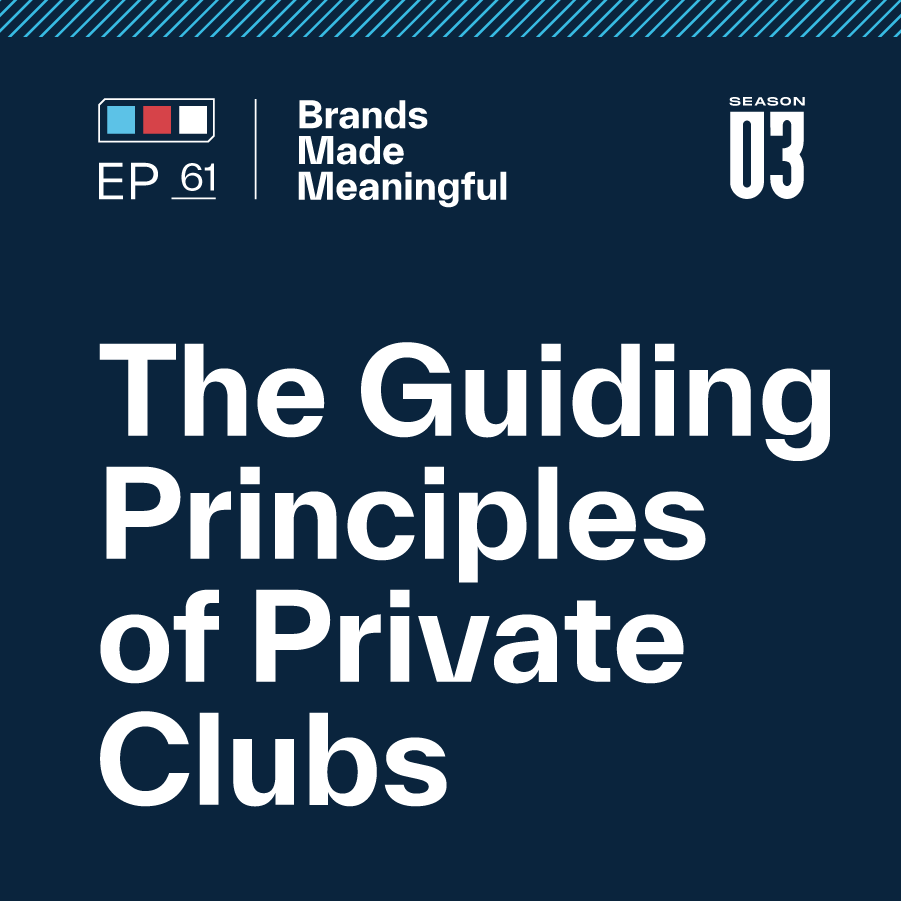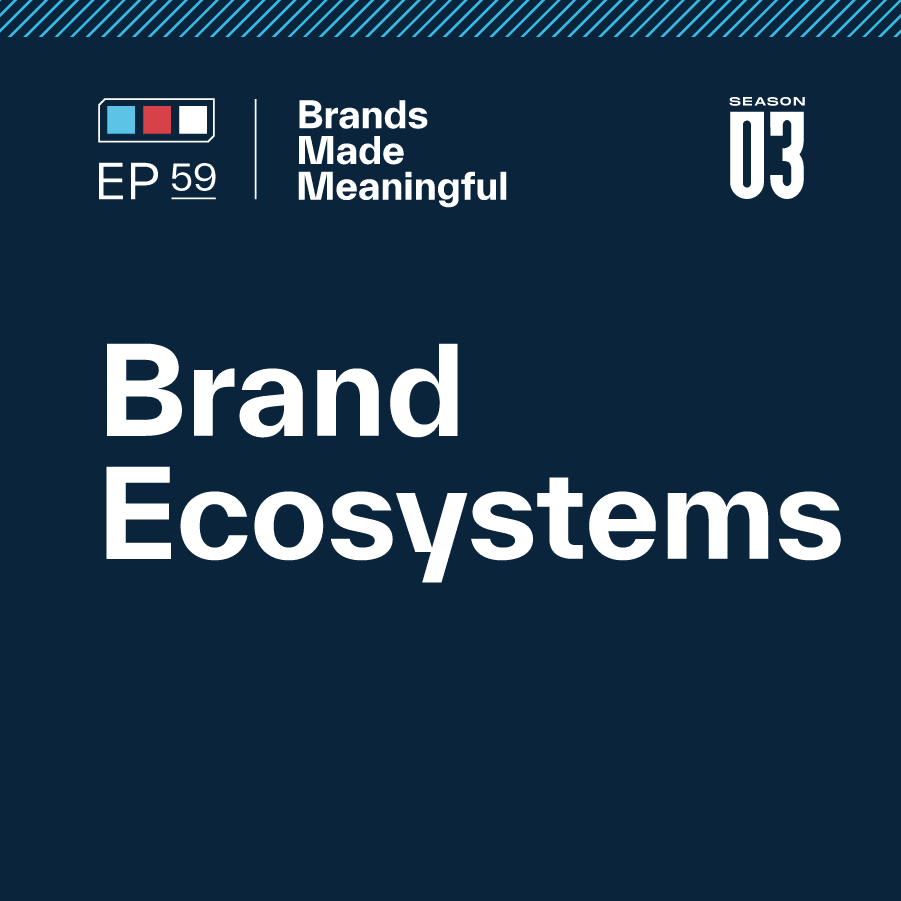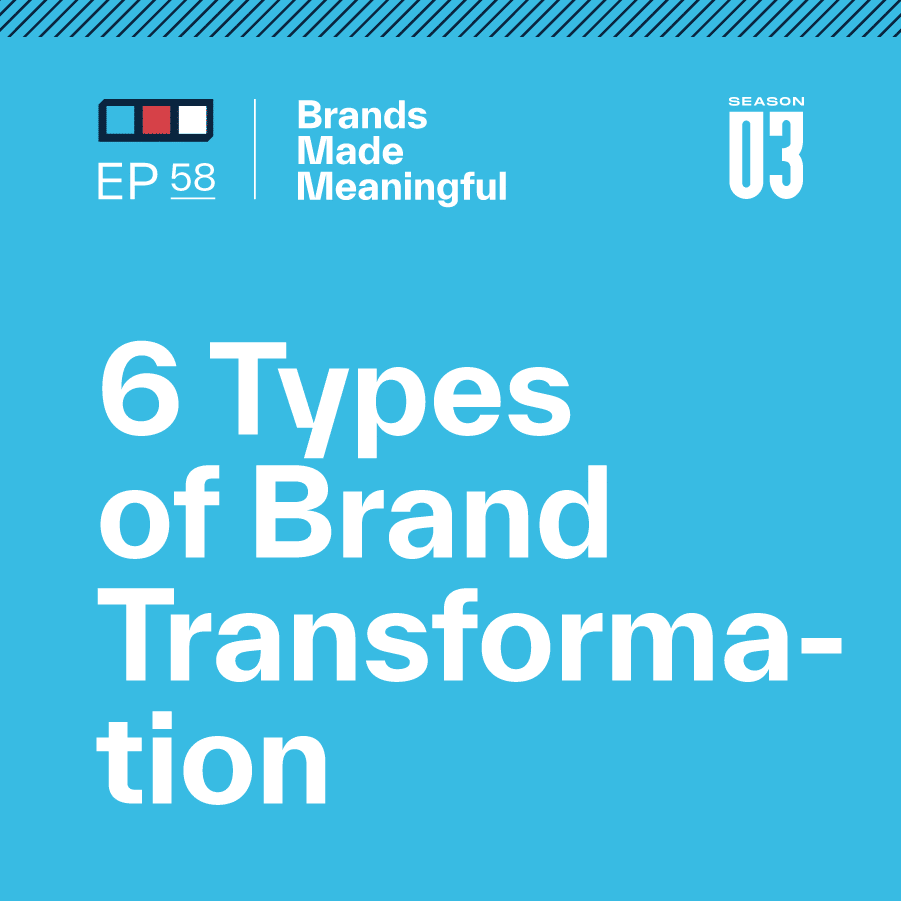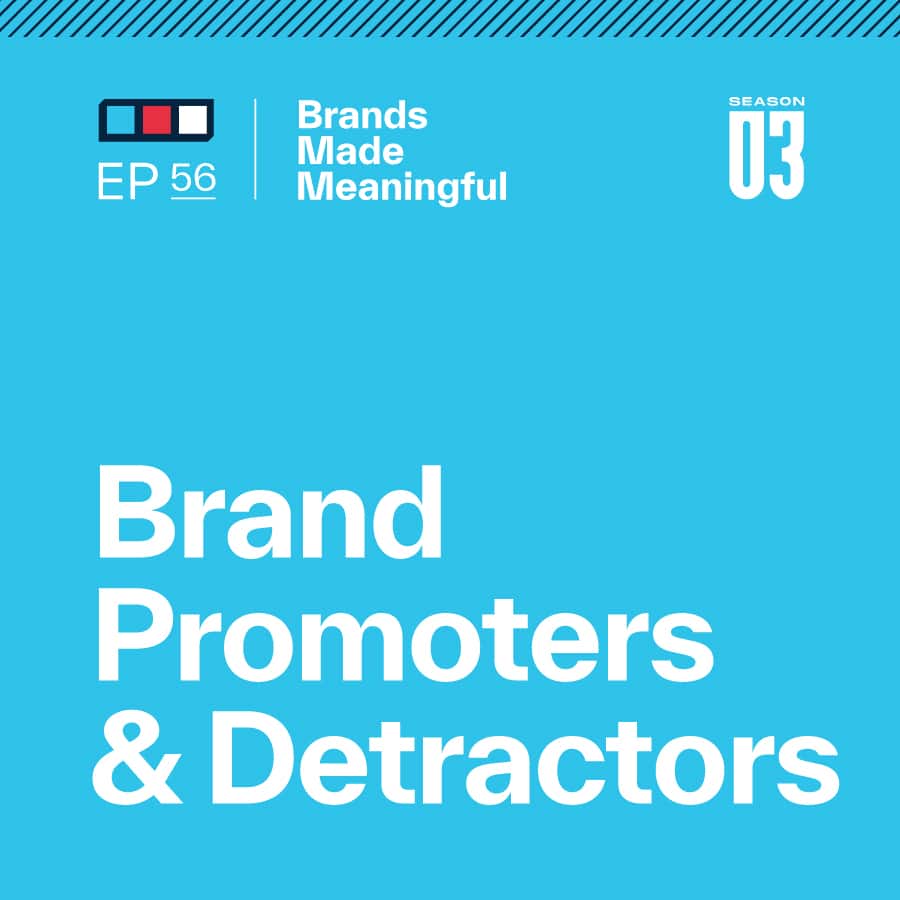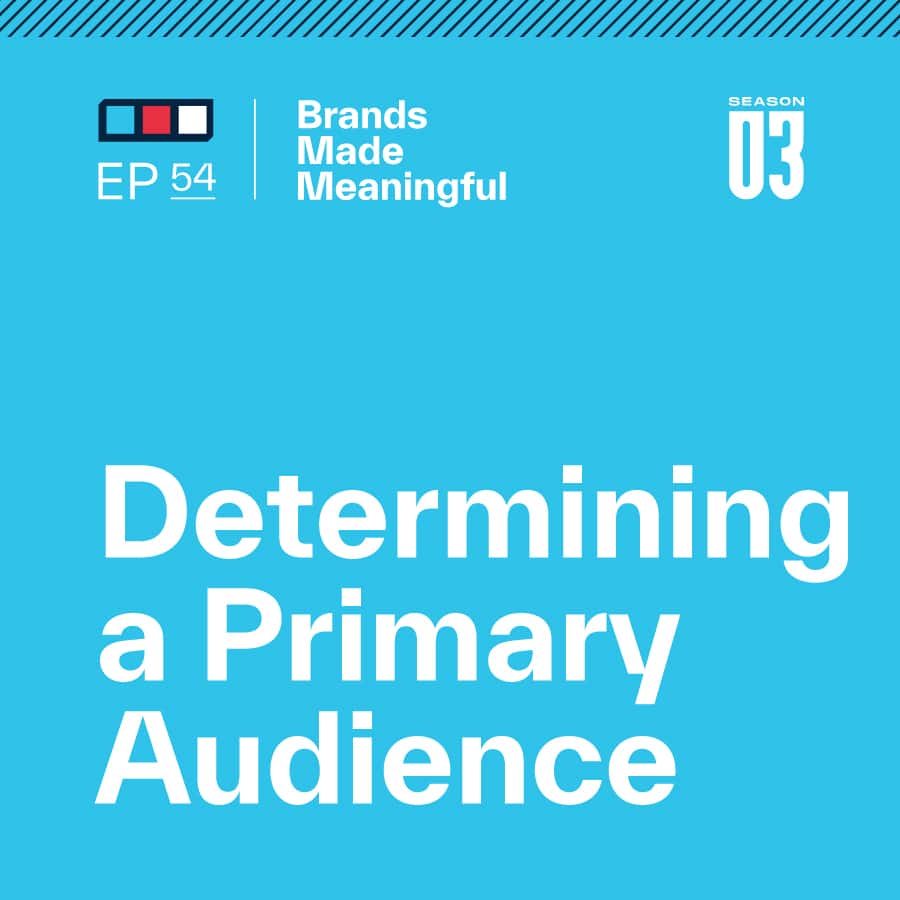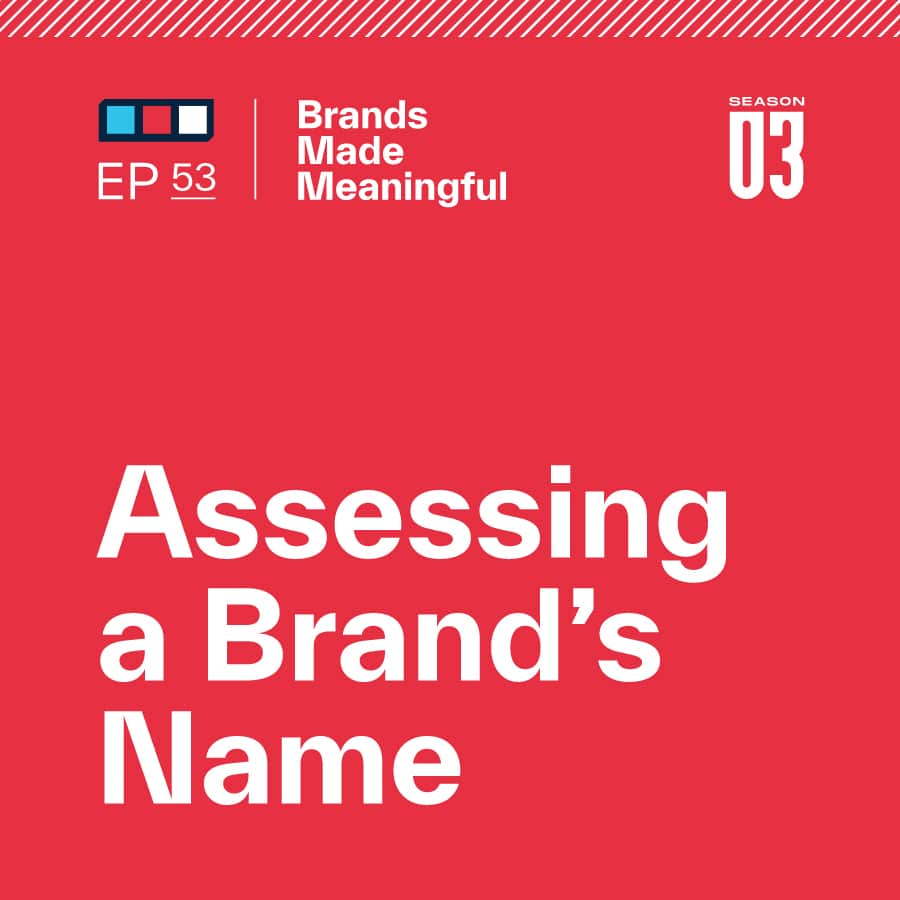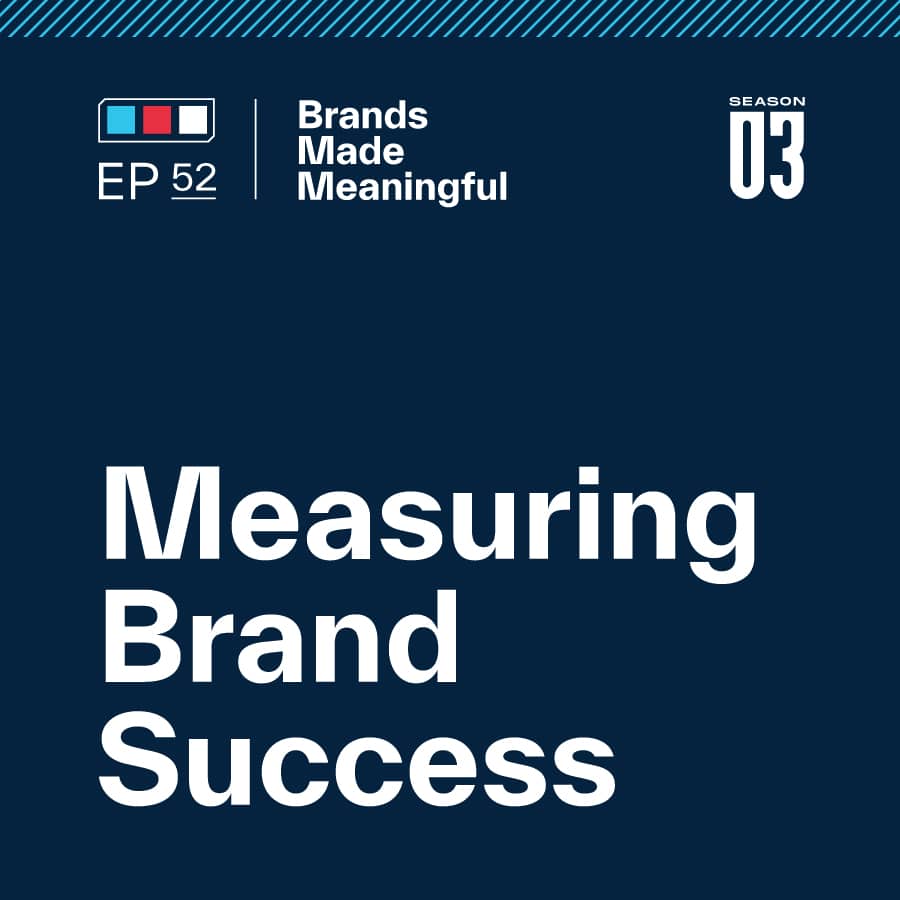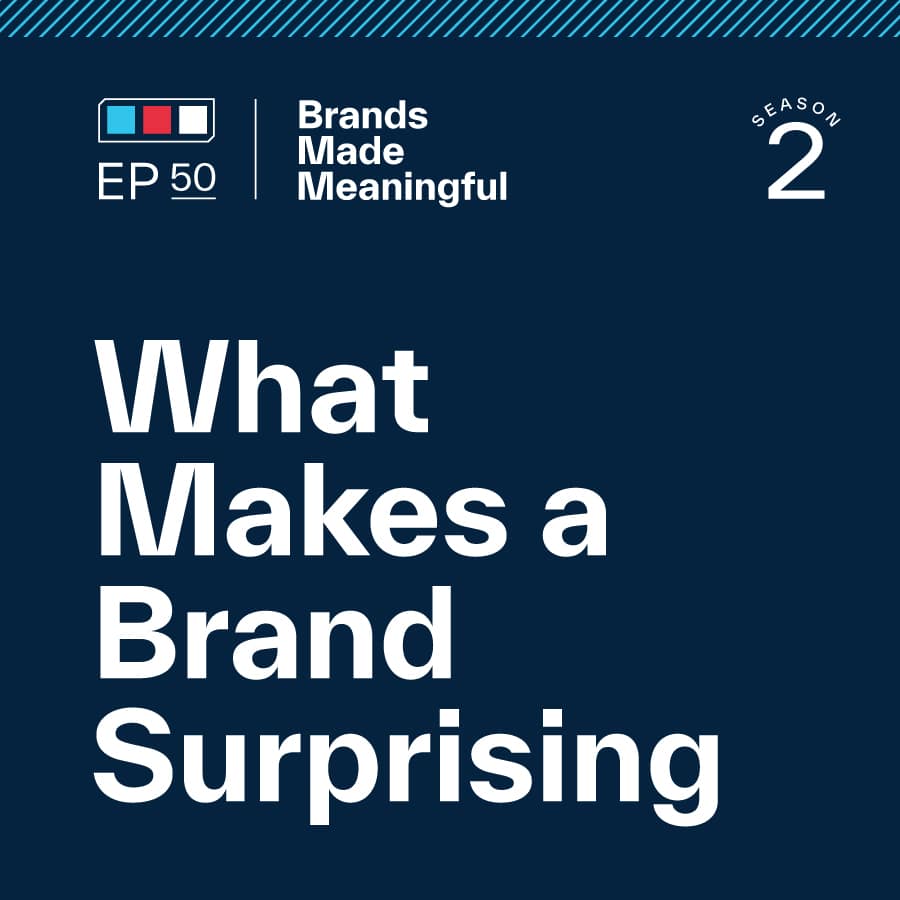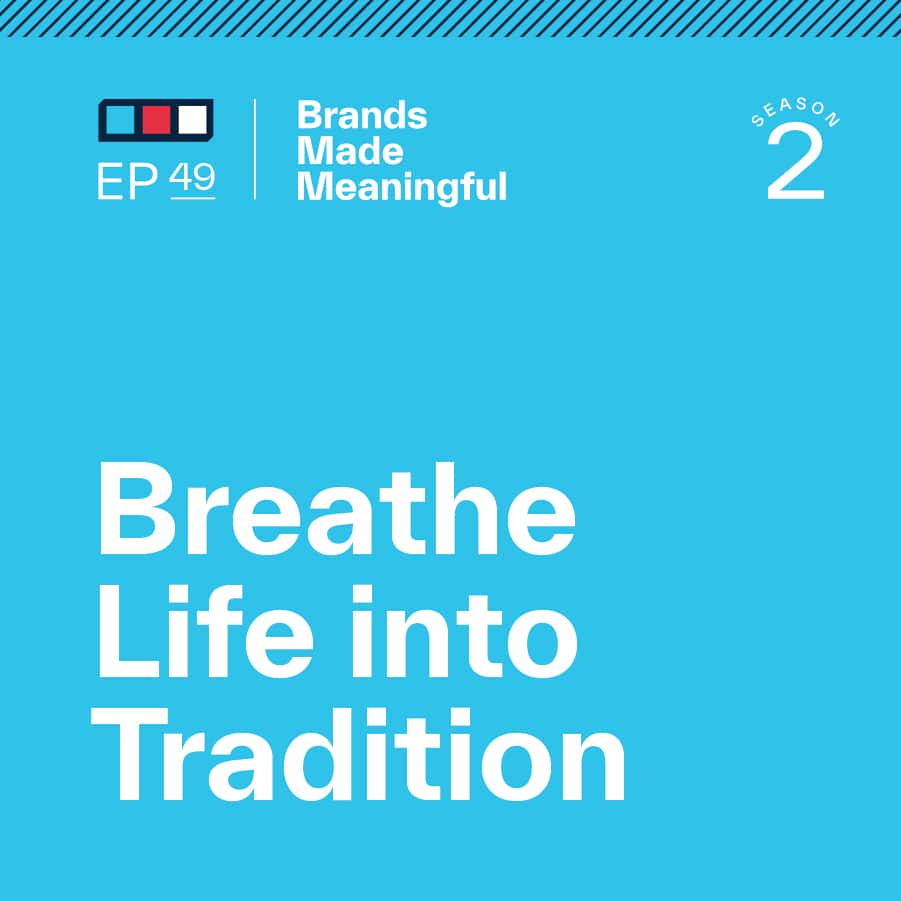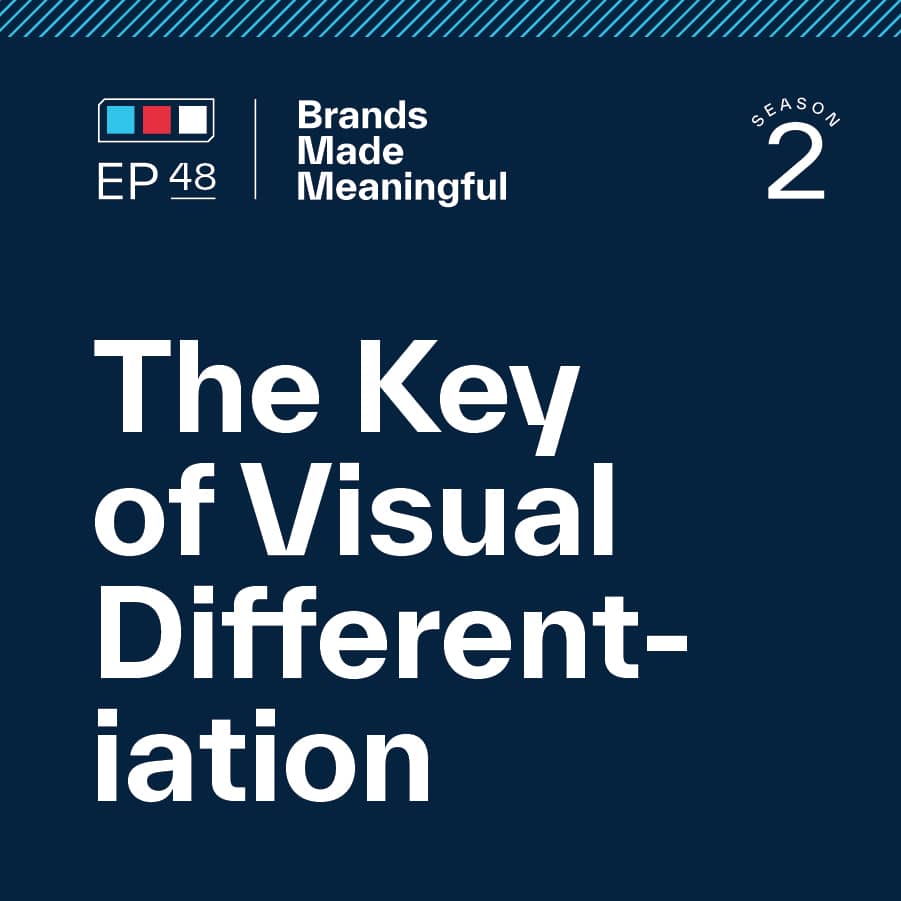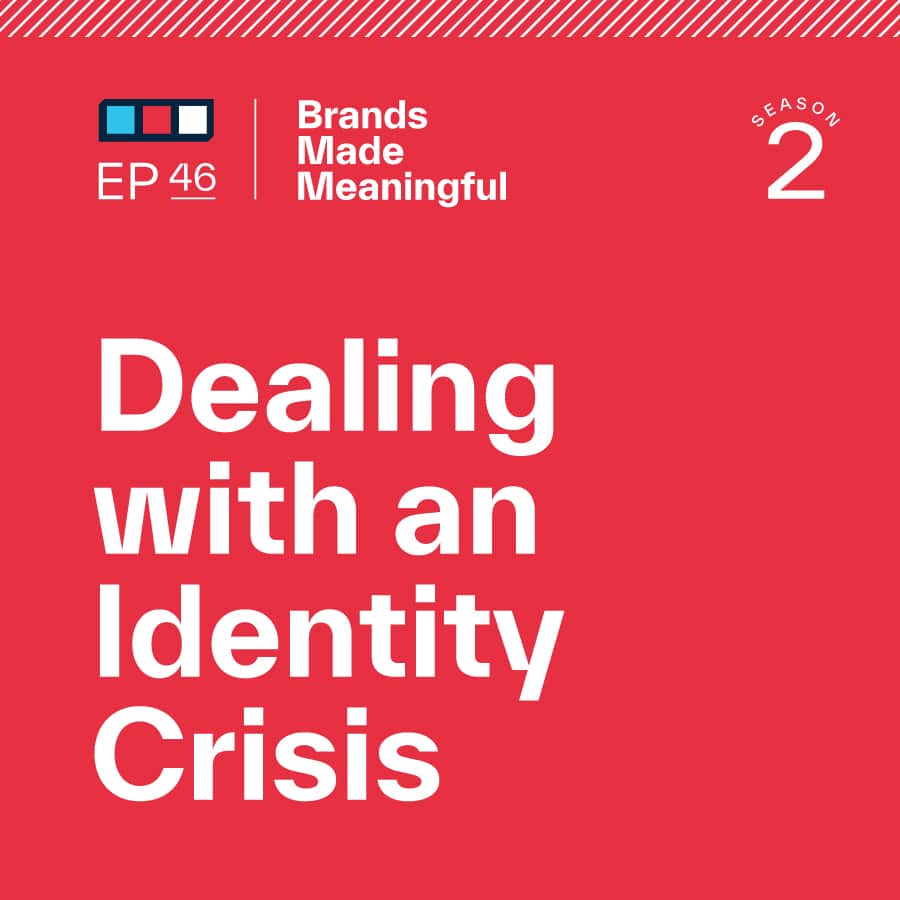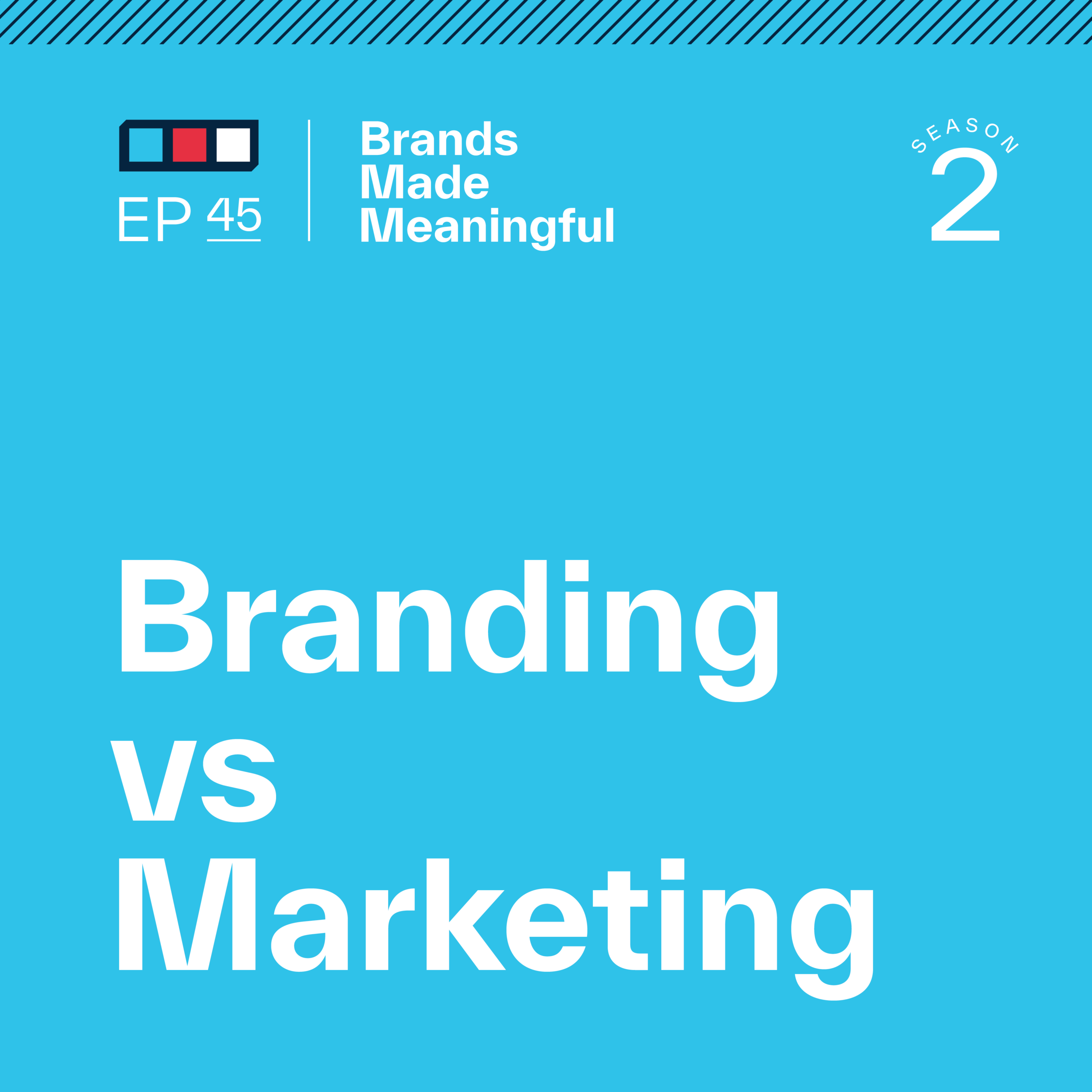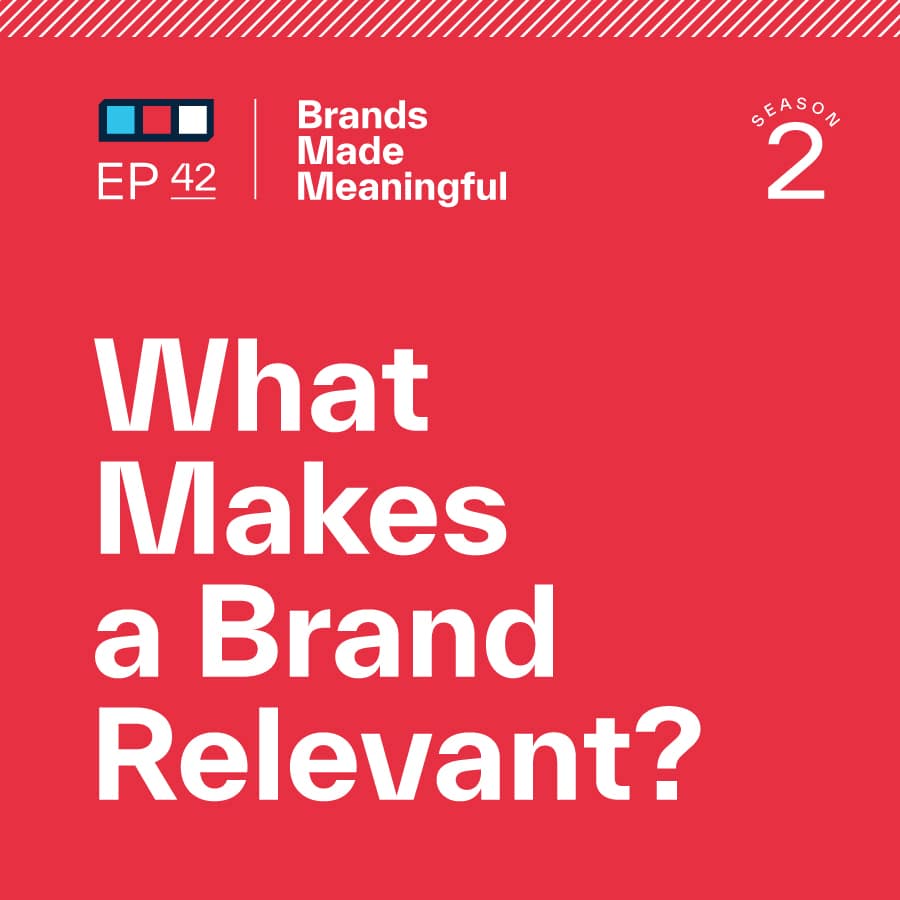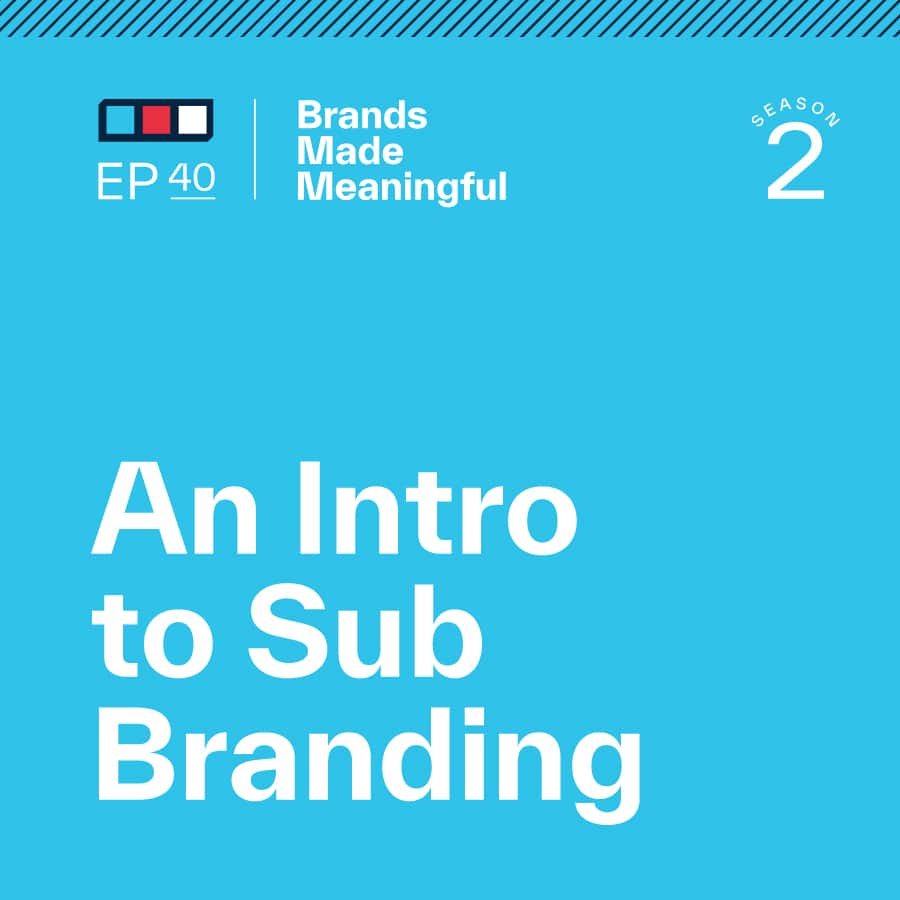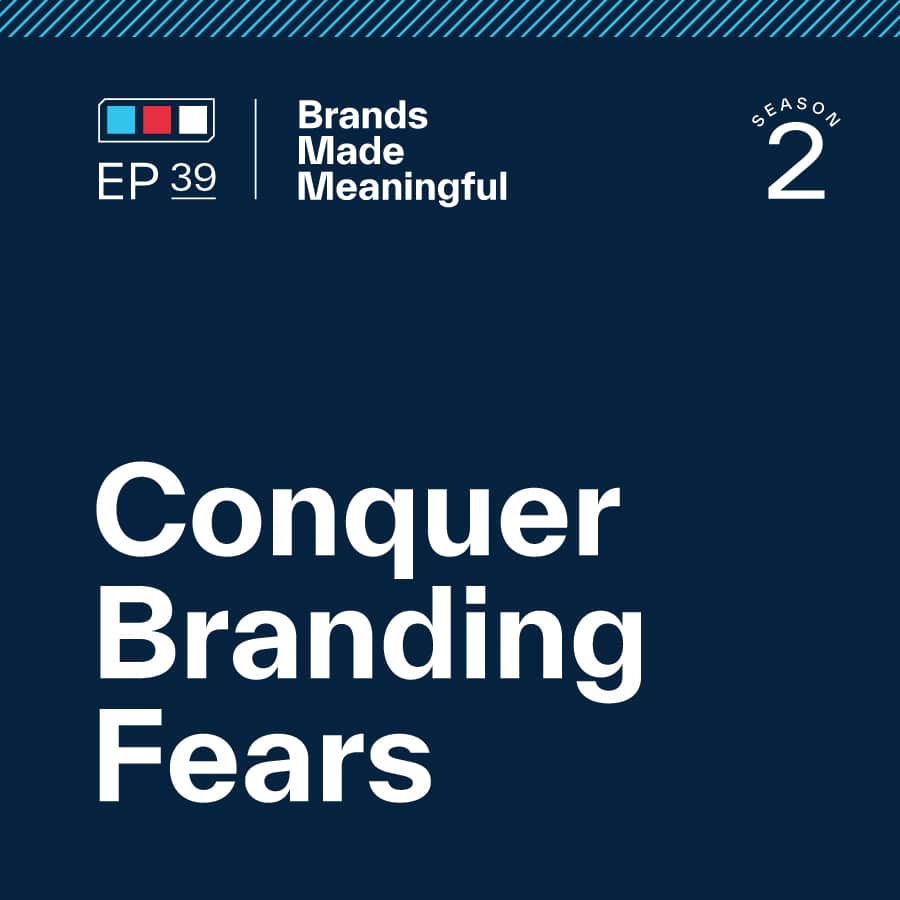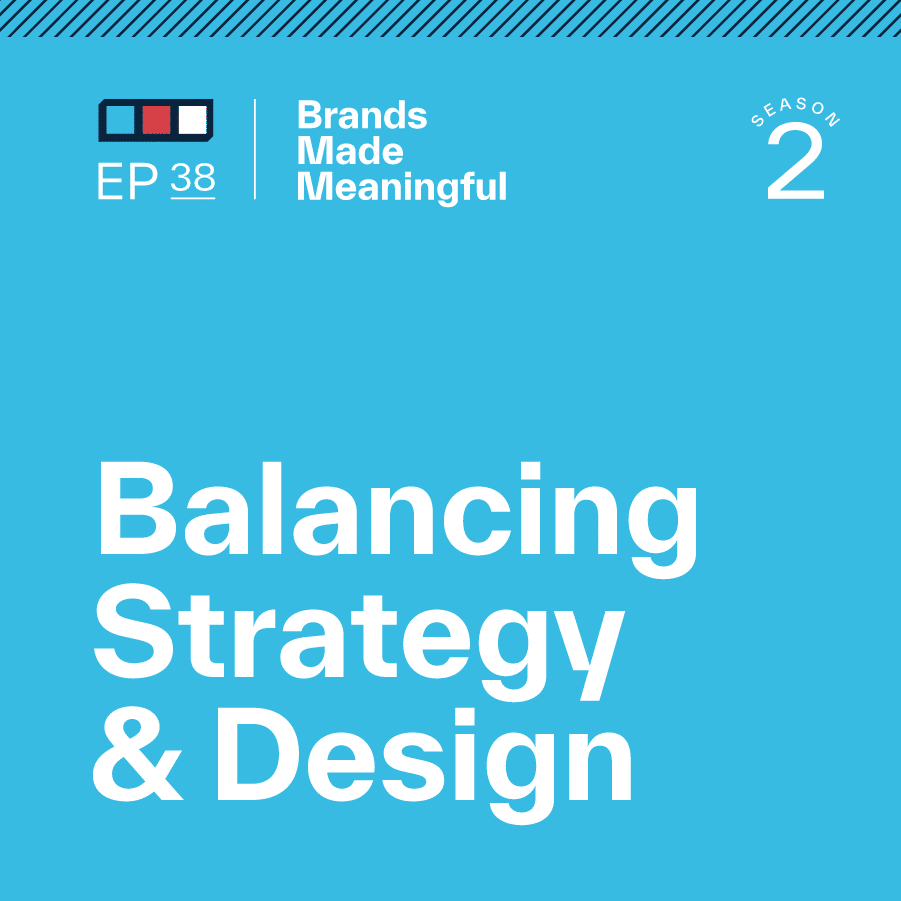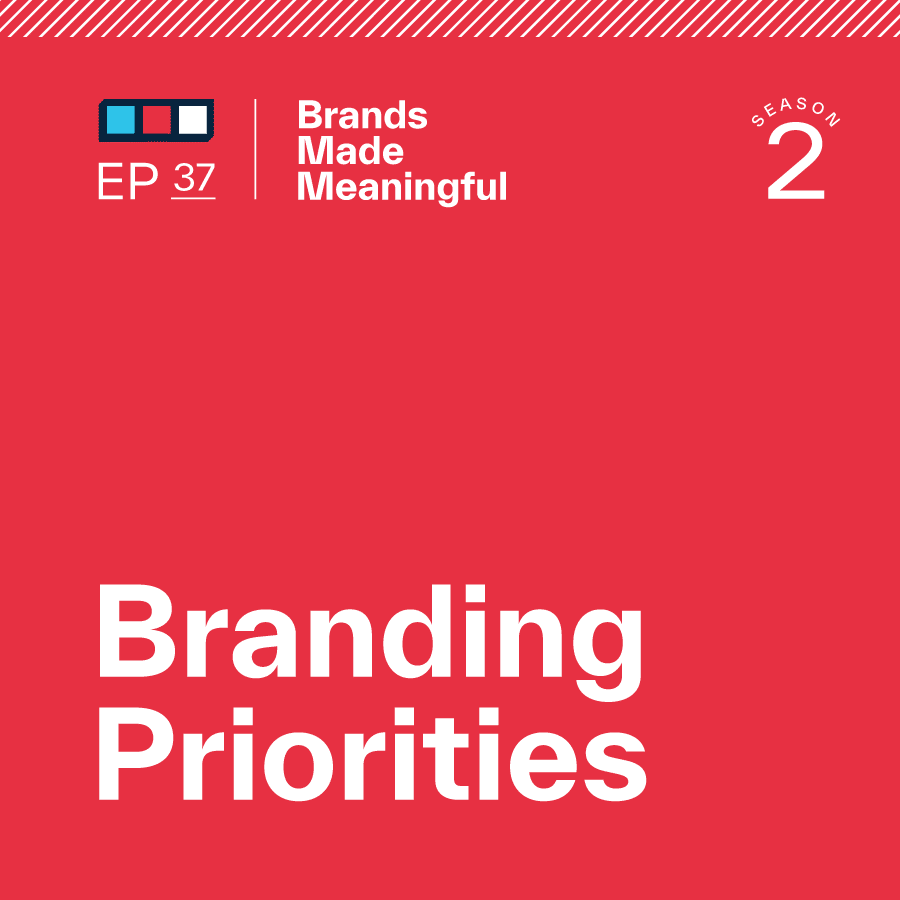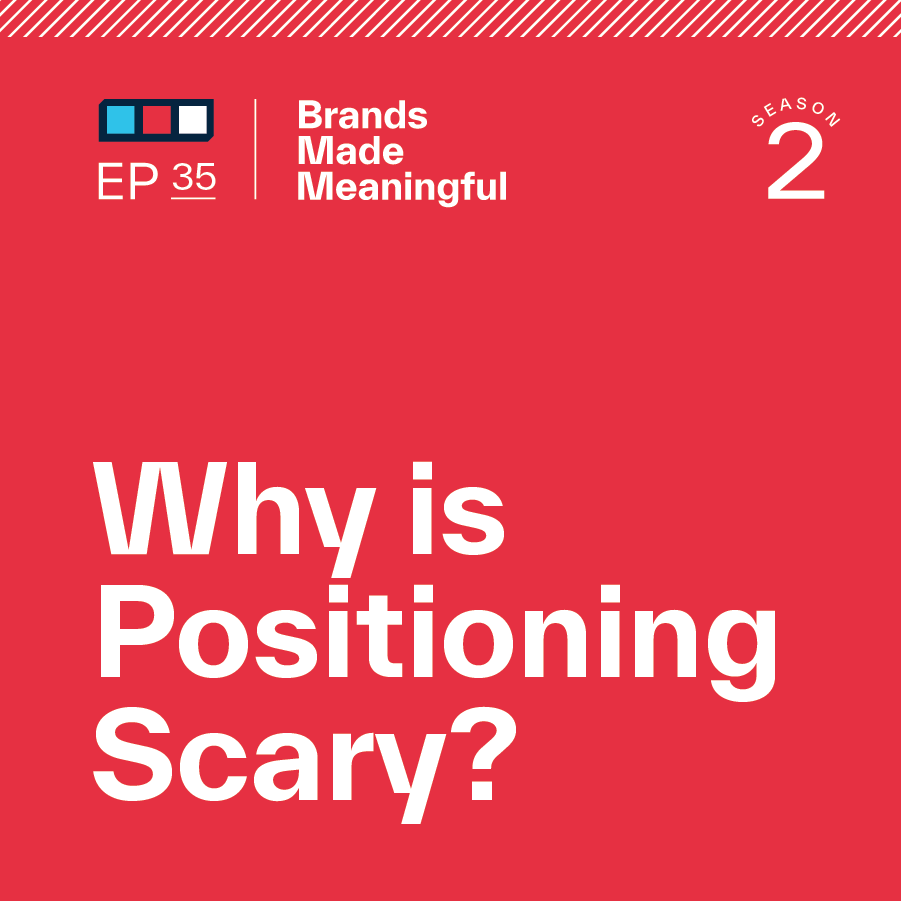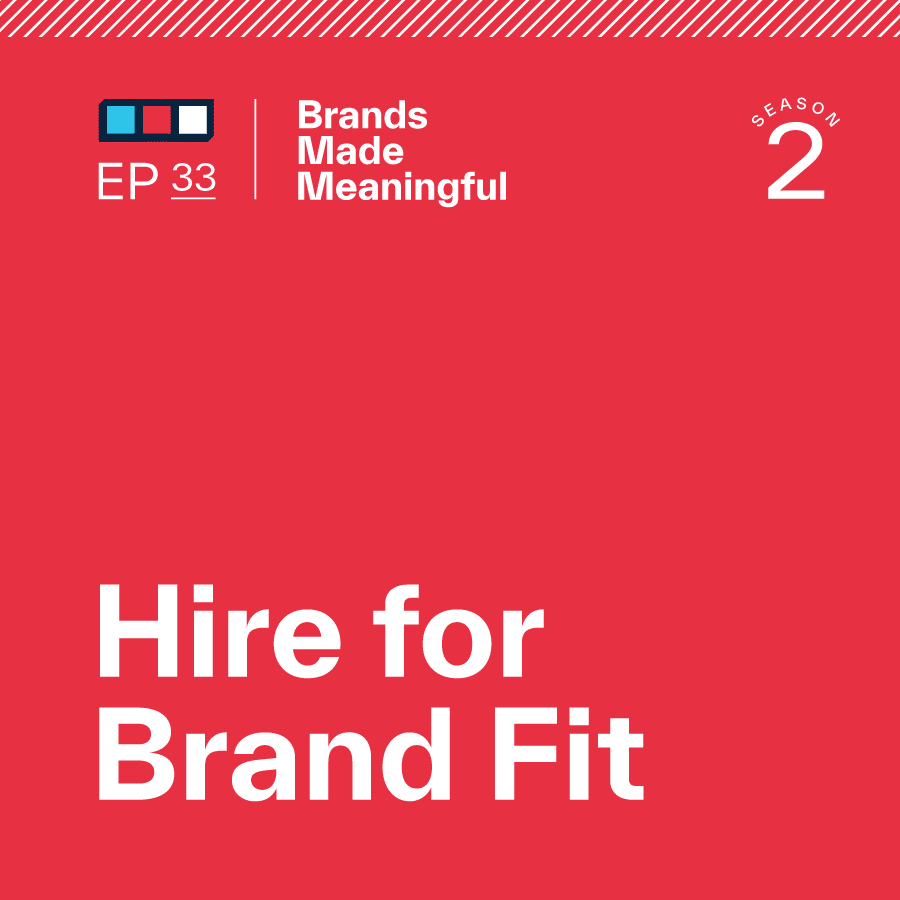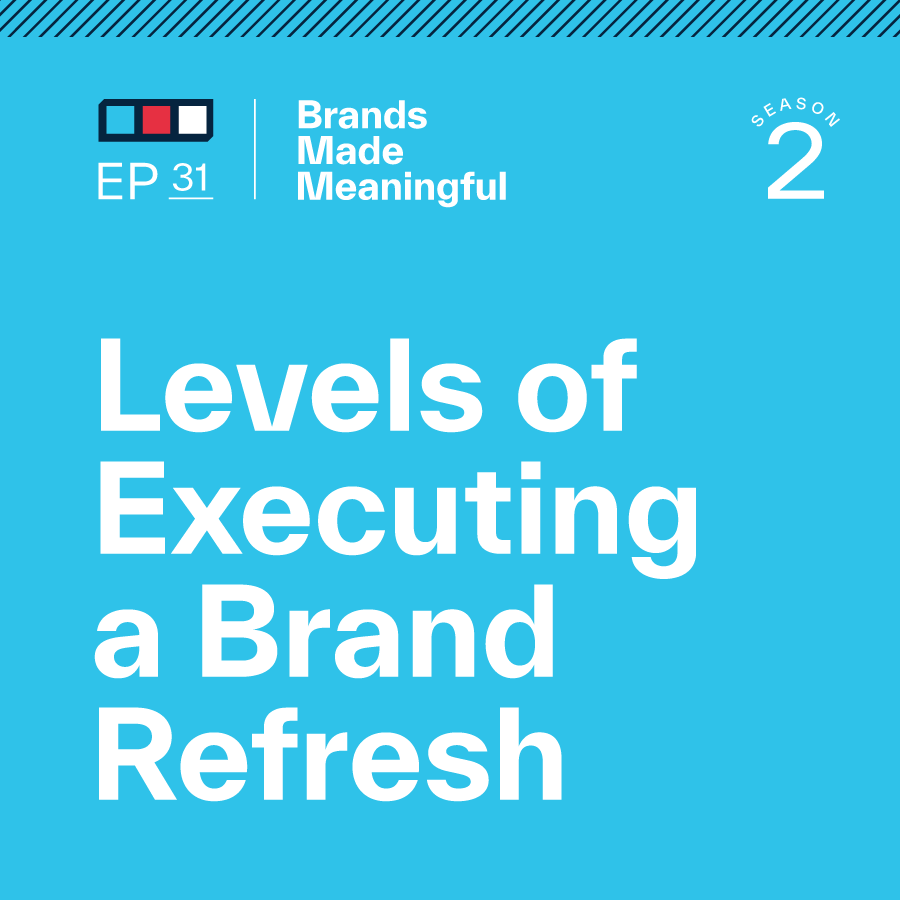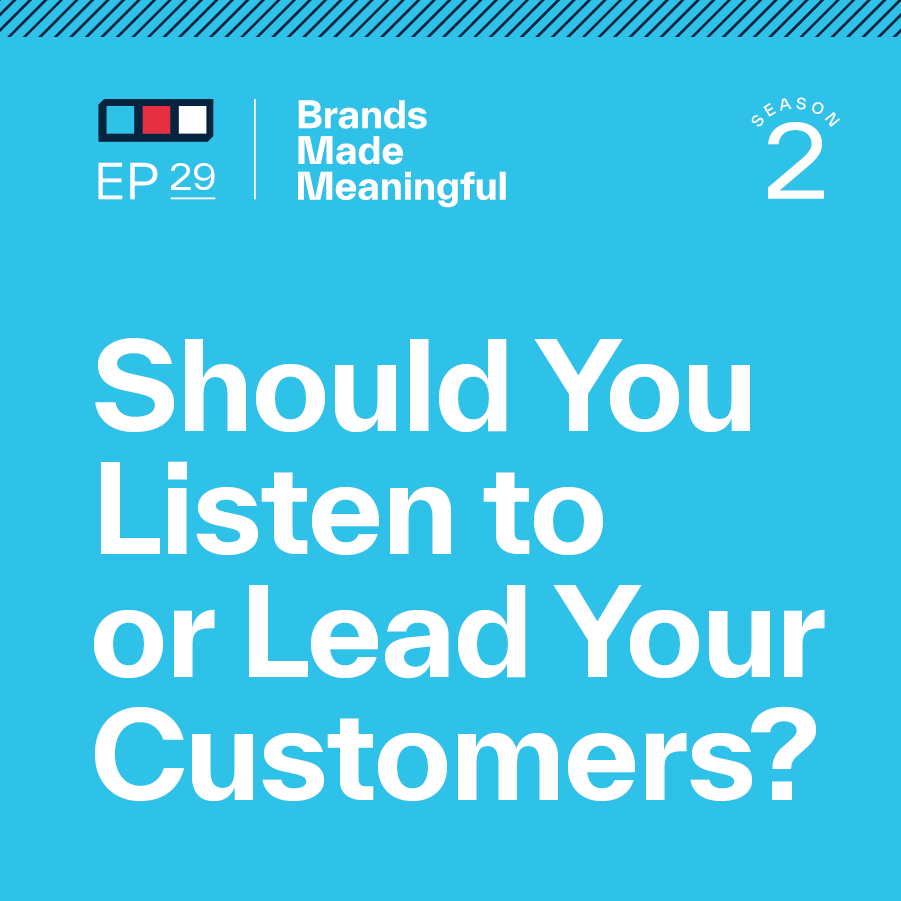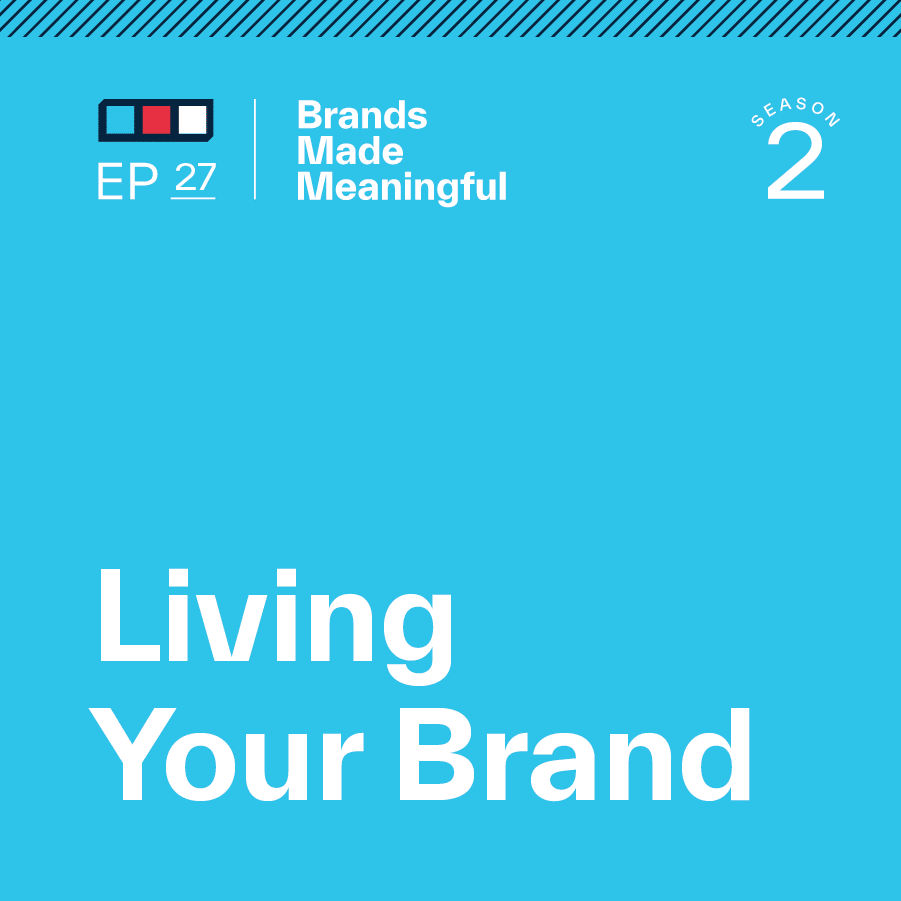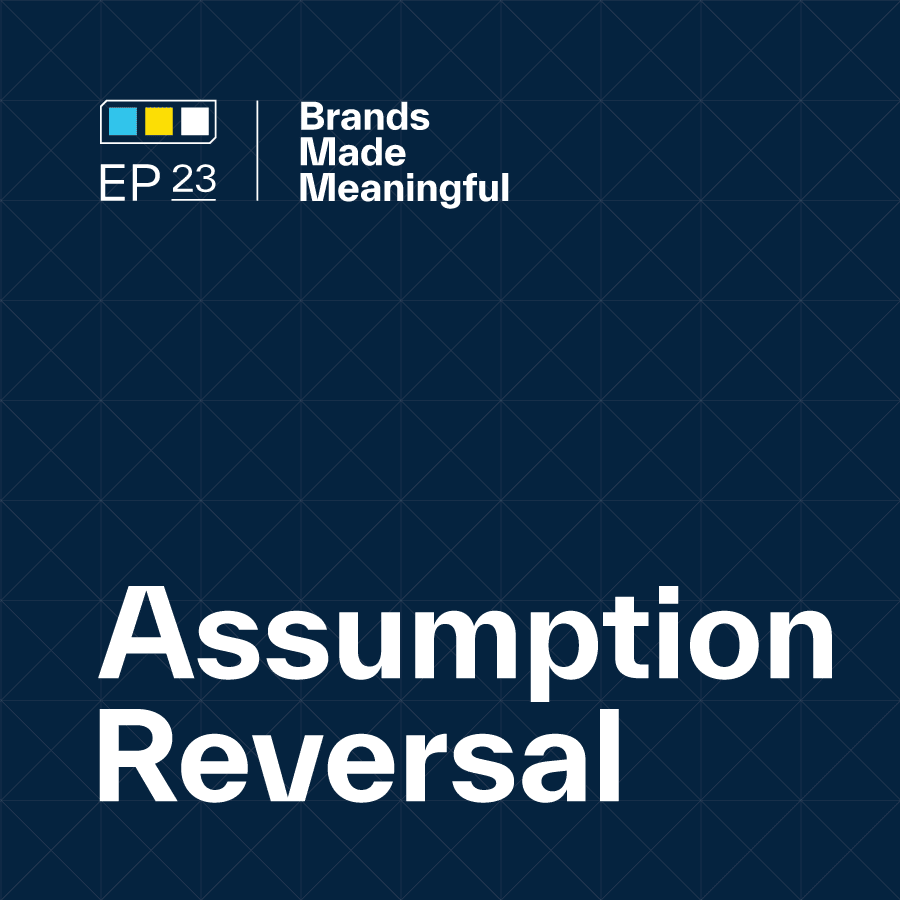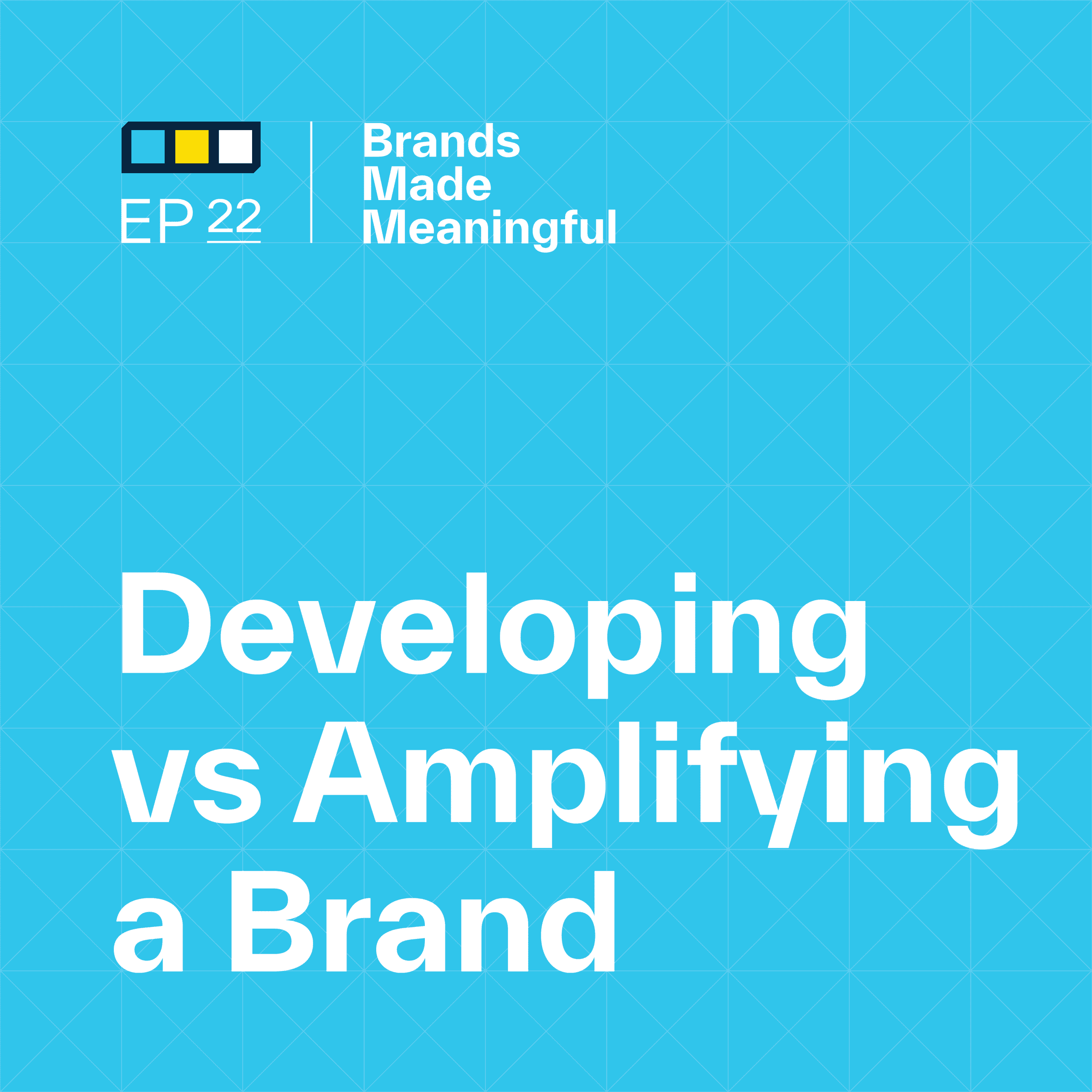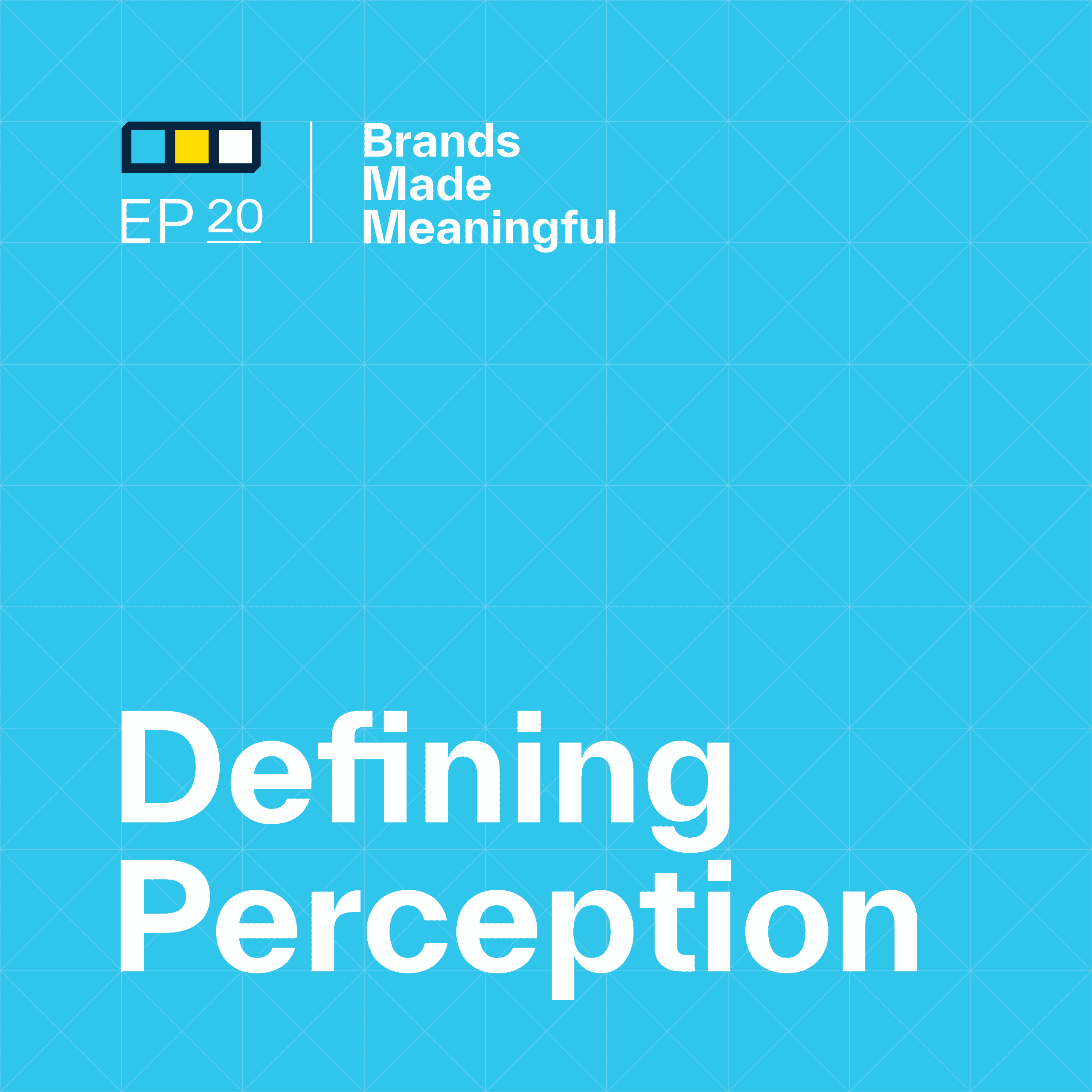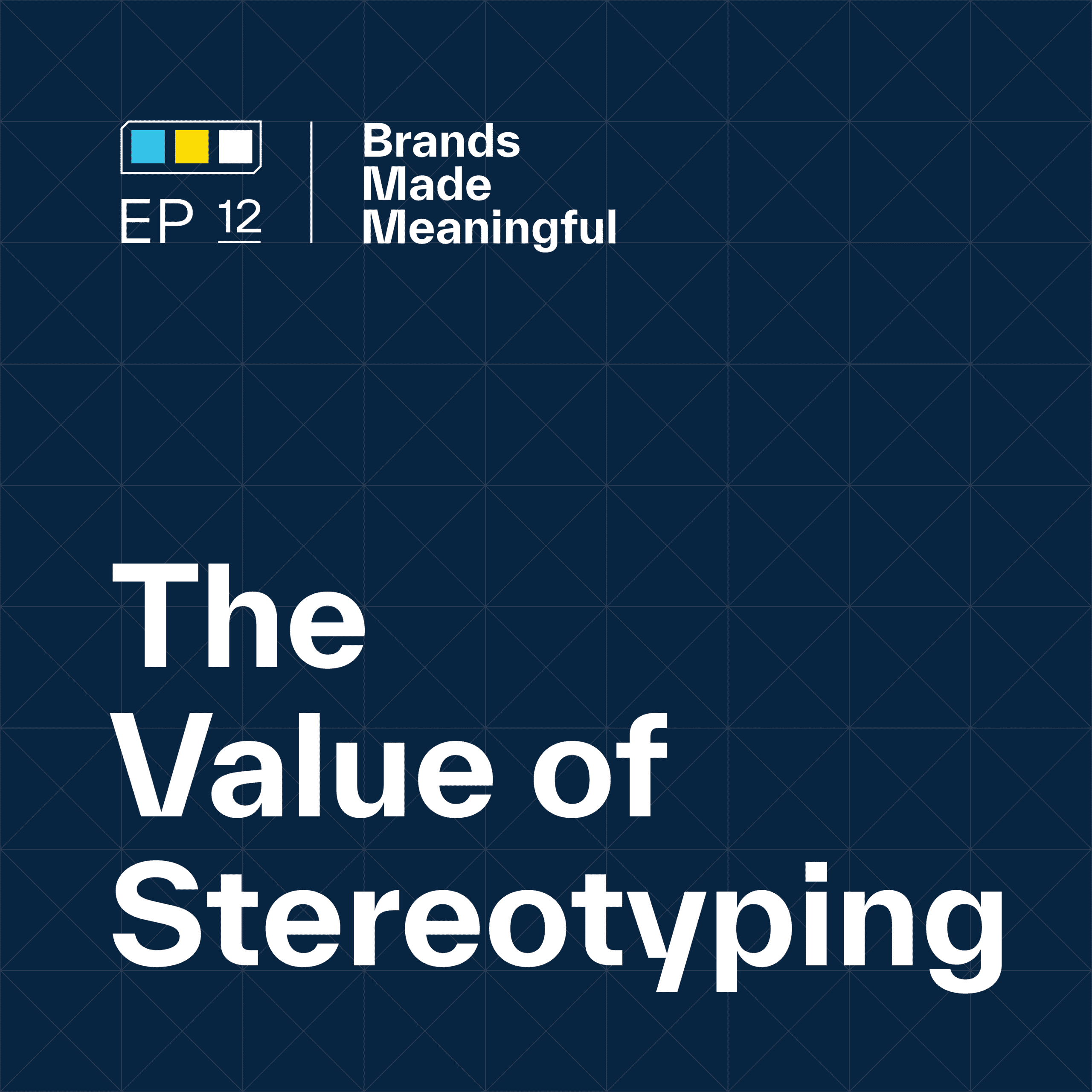EPISODE 51
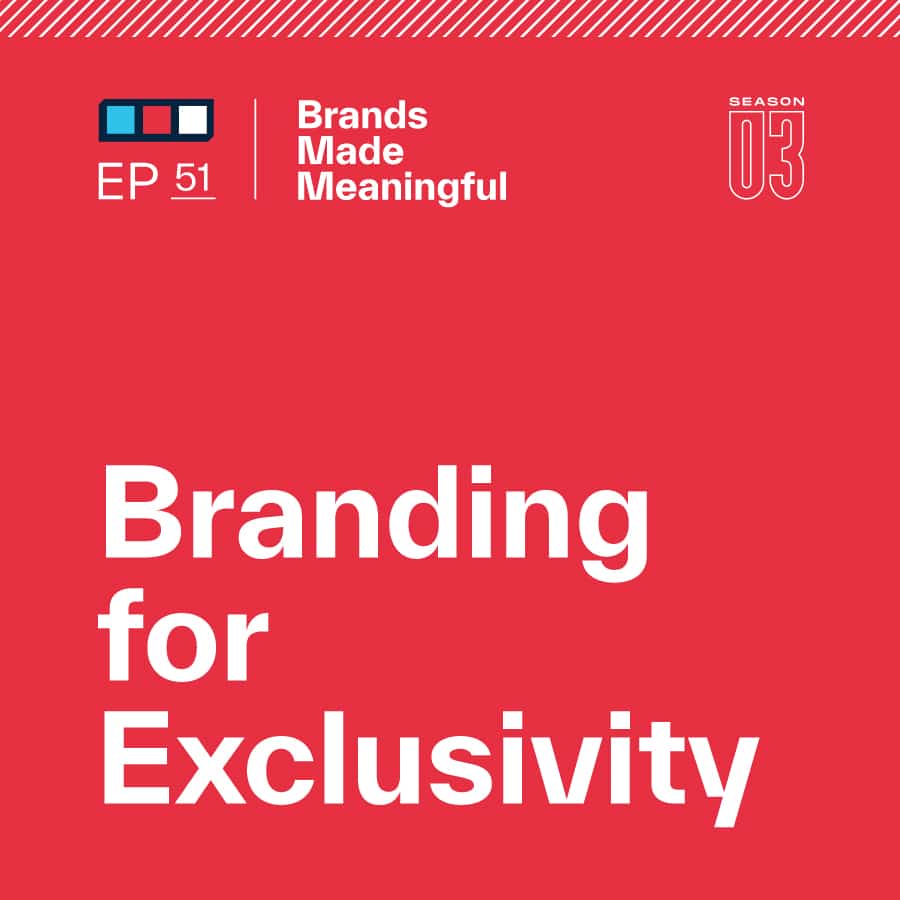
Branding For Exclusivity
Episode 51
Derek and Tucker breakdown how brands can create the perception that they are exclusive and only for a certain type of consumer.
EPISODE TRANSCRIPTION
Today we’re talking about exclusivity, something that a lot of people aspire to but don’t always do
Tucker And we have lots of projects going on right now where this is top of mind.
Expand Full Transcript
Derek Are you talking about being an exclusive brand like a fashion brand? Unapproachable. I’m thinking of very exclusive, hard-to-be-part-of types of brands.
Tucker No, I’m talking about being exclusive as in being for something small, narrowed, niched, as some people would say, but being exclusive in the way that you think about your brand. To say we are for these people and these people only can have an incredible impact on how you find success using your brand.
Derek Choosing to be for a very specific customer base often implies that you are not for other people or that you’re not for everybody.
Tucker Correct. And I think that mindset has had such an impact on our clients. To say we are not for everybody, and here’s the power that that has, deserves a conversation. We’ve talked about positioning. We’ve talked about all of those components. But we’ve never really dug into this thing that we talk with our clients about called the minimum viable audience. We’ve never dug into the power that you can have when you think about your brand as serving this group instead of serving anyone and everyone.
Derek It might be one of the hardest conversations that we have.
Tucker We have a podcast about this already. We’ve talked about the fears of positioning, the fears of narrowing your focus. It’s Episode 35. I would highly suggest people go look at it because that digs into why it is so hard for people to narrow their focus. I’ll do a high level on what that means, but what I want to get into is what we mean by narrowing and how are we narrowing. And that’s really in these two ways – it’s demographic and psychographic. We work with a lot of B2C brands. We also work with a fair amount of B2B brands, so they’re a little bit nuanced. The demographic side of that is for B2C. I think of this as the age group of the consumer, the income level of the consumer, the ethnicity of the consumer, or maybe it’s the gender side of the consumer, and looking at it like that. But if you think about B2B, that’s where we start kind of dialing into business categories, business sizes, or maybe it’s business location – regions in which we focus. These kinds of demographic segments can help us narrow ourselves into who we can be for versus who we’re not for. And that’s a big nuance there. [00:03:08][74.8]
Derek So, clarification for my mom, Kathy, who transcribes these podcasts for us. She would say to me, What do you mean by B2C and what do you mean by B2B? Maybe just for our listeners to not assume they know what those mean. Let’s just go with the definition.
Tucker Keep me true. B2C – business to consumer. So think about this as the people who sell products or services directly to a consumer that is not its own bigger entity, whereas B2B might be something that is business to business, entity to entity. We’re selling things like professional services. Like we’re a B2B company. As a branding agency, we sell business services to other businesses. We don’t do personal branding here. So that would be more B2C.
Derek Our client, Snipers Edge, sells hockey training products to hockey players, so he’s selling them on a website for sale via retail so he is B2C.
Tucker So that’s where we’re at. I walked through the demographics a little bit. That’s basically categorizing people within factual or hard areas that you can label someone on. They’re this age. This is where they are.
Derek Data.
Tucker Things like that. Psychographic is a little bit more emotional. It’s more of the beliefs, the interests, the lifestyle that they’re choosing. Think of this as maybe targeting people who have a health-conscious lifestyle. Or maybe we are targeting people who are really into spectator sports. And that’s specific within the market that’s out there. That’s specifically narrowing us into this type of person. We work with people who have continuous improvement mindsets versus those who don’t. Does that have a way of cutting out a type of niche in a marketplace?
Derek Maybe this is going to start to get too complicated. But a lot of the businesses that we work with that are successful in creating an exclusively defined customer base start to combine and overlap a couple of these. They might say they know they work best with customers and organizations that have a continuous improvement mindset in the business category of financial services.
Tucker Absolutely. We do this a lot, like think of a private golf club.
Derek Financial services in the Midwest that are $50 million to $200 million companies.
Tucker If you go into a golf club, like a private golf club, instead of just being a private club that’s for anyone and everyone who plays golf. Maybe we are a private club for retirees who play golf specifically and want to get better at golf so they have this continuous improvement and they love social settings after that golf. So we can start narrowing what we’re offering versus just offering a private golf course, period. So there’s this narrowing of it. And that’s not a perfect example because there’s a lot of those just in general. But you would want to look at all of these demographics and psychographics. And what you’re saying is how do we combine those and piece those together to make something unique? So if we can pull specific demographics and we can pull specific psychographics of the people we’re trying to reach, that’s a unique set. Now we have a target market for this brand that is unique to us and allows us to, what I would call it, unlock the power of decision. Now we know where we’re going, what we’re doing, who we’re doing it for, and that’s super powerful when it comes to developing things like visual and verbal assets for a brand.
Derek To do that, to get there, though, there’s a hurdle to cross.
Tucker Absolutely. And this is what I was referring to in that podcast, Episode 35. I’m blanking on the name of it, but it’s all about the fear of positioning.
Derek It’s about why positioning is scary. We were close.
Tucker There’s the title. And what we’re talking about is change is hard for a lot of people, especially in the brand world. At your organization, you either have someone in charge of the brand because they’re a brand marketer or they’re at some kind of director level – VP or even CMO or maybe they own the brand. That person most likely has been there long enough that they have some kind of history with that brand. It’s hard to change, especially narrowing that brand focus when you have done it for a really long time in a more general setting. So we get into things like we’re afraid of alienating or losing current customers. We’re afraid of the market uncertainty that’s going to happen. We’re afraid of the competitive pressures of the people we’re up against in the market – maybe they’re going after these people. Maybe they’re going after everyone and we’re afraid that if we go after the smaller group, then they’re just going to take all that business. We shouldn’t be worried about those things That episode walks through why we shouldn’t be worried about that.
Derek A lot of business owners that we know started a business because of something that they were good at, and it wasn’t necessarily because of a certain focused niche or industry or opportunity. A lot of businesses, I don’t want to say accidentally, but maybe with less strategy than you would think, grow to a certain size and they were able to get to that certain size and have that certain success without a lot of strategic focus on who they were for. But for a company to grow and to get to that next level and to be able to compete with a slew of competition out there requires making some of these choices.
Tucker I don’t want to dive too much into this conversation because we’ve already had a 30-minute conversation about it.
Derek We are assuming people have listened to that.
Tucker And they should.
Derek They should. It was incredible. You were on your game that day.
Tucker Oh, yeah. As in every day. When we go through that, it’s the freedom of being able to put yourself in a box and be creative within that box. So it sounds counterintuitive to narrow yourself so that you can open more doors, but it happens every single time. We’ve seen it a hundred times with the businesses we’ve worked with and with the consumers that actually see that brand and they resonate with it more. Why does all of this matter? Why do we need to pick and choose the psychographics, and the demographics, and kind of build this beautiful collage of who we serve in a narrowed setting? What is really to gain here?
Derek There’s a bunch. I’m looking at a list that we put together. These are all great, and we’ll go through them, but it makes selling easier.
Tucker Yeah, that’s the overall takeaway.
Derek There’s an analogy and I’ll butcher it a little bit, but if I’ve got a leak in a toilet in my house and it’s causing water damage, I’m not going to call a general contractor or a construction company. I might not even call a handyman. This is something that’s really important to me and vital. I’m going to call a certified licensed plumber who is a plumbing expert.
Tucker Yeah, this works. That’s a great B2C analogy. Consumers are going to purchase from someone who has the lowest amount of risk because they want it done and they want it done right. From a service area, and from a product area, they want the product that was built for them versus being built for anyone. From a B2B area, so that is a business-to-business area, think about this in size of opportunities. If someone’s going to pay out a lot of money to try to work with you on a project, do they want someone who could help them but helps a lot of people who are maybe like them or maybe not like them? Or do they want to work with someone who’s going to help them and who has helped people just like them solve this same problem in the same way and understand the nuances of their challenges? And what I would say, and we’ve gotten into this conversation with clients, is in a B2B setting, you might be able to win business as a generalist, and that’s totally fair. But the big business, the meaningful business, and the recurring business comes from being specialized in what you do and how you do it. And that can really change the game for a lot of brands out there who are just trying to sell to anyone and everyone. To be more specific.
Derek The accounting firm that we hire, that we employ, shout out Paul Miller at Business by Design. We hired Paul after a handful of prior accountants to help us with our tax return, specifically because Paul and his team, Josh, are familiar with how the creative business industry works. I’m sure they can do tax returns and financial business and tax planning advice for anybody and everybody, and I’m sure they do. But it was because of their experience and specialty within the nuances that we run into that gave us the confidence to not only hire them but to now have worked with them for ten years.
Tucker Let me go through this list quickly because I spent time putting it together and I don’t want you to just blow it out of the water. So why does this matter to brands in general? So you said sales, and that’s absolutely relevant. I’m thinking about this from a branding lens. So think about this in the developing of logos and taglines and messaging and websites and all of these pieces that are brand-oriented. Why does this matter? One, it creates better relevance. Many of our conversations say what we’re trying to do as a brand is to be relevant, authentic, and surprising. Relevance is super important to attracting the right people for your business. It’s also really important to keep them understanding who you are and helping them bring relevant consumers to your business too. So having that relevance and that connection is going to be big time long term. The second one is brand loyalty. So how do we optimize brand loyalty? Well, we can create loyal customers by just doing good work. We can create loyal customers by having a great product. But we can also create loyal customers by having a belief system within our brand where they feel like, Hey, you guys get it. You know what we’re doing. You understand what’s important to me. And I believe that you get me on a deeper level than just that I need this service or product. So that loyalty is huge.
Derek To be able to say we get it, we know exactly what your problem is or opportunity, we know exactly what this is like because we’ve helped all kinds of other people and or organizations with this exact same problem is an incredibly powerful position to be able to have when talking to somebody.
Tucker Differentiation is the next one. It just makes you different within the marketplace. If you’re selling t-shirts, selling t-shirts to anyone and everyone kind of makes you just like anyone who sells clothing. But if you’re selling a sustainable t-shirt that’s for rock climbers that helps them identify themselves and pull that forward, now you’re not just a t-shirt brand. Now you are a rock climbing brand that focuses on sustainability. So think about that differentiation in how you show up in a marketplace even with the same product or service.
Derek This gets into that psychographics piece, but now you’re tapping into people’s identity. Not that I like to climb once in a while, but I am a rock climber. That’s two different things. And if you are a brand that is selling to rock climbers, that is a whole different opportunity than just selling stuff to people who climb once in a while. When you can tap into that psychographic identity of how people see themselves – I am a runner, I am a writer, I am a climber, etc. – that differentiation is a game changer.
Tucker And so now we’re a brand for climbers, right? So that is different than saying we’re a brand that sells T-shirts to anyone.
Derek Hopefully, these next three or four reasons also help people say, But think about all the people I’m not selling t-shirts to. How many how many rock climbers are actually out there?
Tucker You’d be surprised, by the way, how many rock climbers are out there. I was surprised. One is word-of-mouth advocacy. When you wear a brand on your shirt, that kind of goes to the next person we work with. You said it earlier, Snipers Edge, which is a hockey training company. And that word of mouth and advocacy that they can create is because they don’t just sell hockey training products to anyone and everyone. They sell hockey training products to the parents of children who want to get better at hockey so that they have a chance to grow within the game and help the family aspect of that all come together because they understand that the person who makes the decisions is this person and the person who actually helps that child get better is the parent enabling them to do that. And so that then goes into if we can build a brand for that parent and that parent has friends who are probably in the same thing as people tend to group together within their friends.
Derek They absolutely do.
Tucker And so to say, Okay, how do we get them to be so excited about our brand that they want to tell their friend about it?
Derek It’s a community, maybe a family, it might be friends, but you are now getting into a community of parents of hockey players versus just talking to hockey, anybody, everybody everywhere.
Tucker This allows you to be consistent and coherent in saying, we know you, we build a brand around that. It also allows your team to be more consistent with how that brand gets activated across different places. You understand who you’re for. You’re not getting distracted by certain things that go, Ooh, this is a shiny object. Maybe we could go sell this product but does our audience really need that or does that change anything for them? Can we build this perception that we have of being their identification piece? Does that help us do that or not? It makes decisions a lot easier.
Derek Also factors big time into that other component of authenticity because people who are that many layers into that market talk a certain way, they have their own language or they have certain slang. And if you know that and you’re part of that market, not only are you talking to them authentically, it’s going to be way easier to position yourself as an authority in that field or industry or niche.
Tucker The other thing that I like to think of when we’re going into being that small and tailored audience, that minimum viable audience, is your brand becomes adaptable and innovative within that market to say, Now we can look and be really specific about what we offer. Well, maybe we offer t-shirts to rock climbers. What else do they need from us? What is the best t-shirt for rock climbing and how does that come into play within their life and the story that they’re trying to tell? And how can we be more specific about their needs and build a product that’s not for anyone and everyone, but something that’s for them? That allows you to be much more creative with how you come to market. That makes you a leader in a marketplace rather than a follower in many marketplaces. So we say that a lot. It’s like you’d rather be leading in this market than just being a follower in a lot of different markets. We were in a client meeting where someone said we would rather bet all in on one or two hands at the poker table rather than try to bet on every single hand at every single poker table because that’s a gambling addiction. We don’t want to be gambling addicts. We want to be high rollers. And how we get there is by being really specific about who we go after and why.
Derek And in that blackjack scenario, you’ve actually now stacked the deck when you’re only playing two big hands because you’re playing a single blackjack deck, not a blackjack deck, where there’s a table with eight or ten hands where you know now how many face cards are left and you can make some strategic planning towards winning that hand. It increases your odds.
Tucker You better watch out, Derek. You’re going to get calls. You’re going to be thrown out of a casino if you keep counting cards like that.
Derek Well, I can tell you if you’re going to go play blackjack, pick a table with the least amount of decks of cards and your odds will go up.
Tucker I kind of want to wrap this up. I’d like this to be a quicker conversation. But as we keep going forward, being more specific and being more narrowed within your brand focus helps you as a decision-maker in a lot of different ways. It’s going to give you more confidence. It’s going to make you have more effectiveness when it comes to building brand components. It’s going to make your team more excited. That’s what we’ve seen. That’s something I don’t think we predicted before we really dove into this a couple of years ago. Teams become more excited to say, We know who we’re going after and I have a challenge in front of me that I feel like we can hurdle versus we need to sell to anyone and everyone using generic pieces where I’m just kind of spinning my wheels here and I get frustrated. How do you give your team the firepower or the ammunition to really go after something and do their job really well? This is how you do it.
Derek And we’ll have a separate conversation about when that narrowed focus happens. Is that audience viable for your business? Is there enough actual revenue out there? Is there enough opportunity? Are there enough rock climbers to buy your t-shirts? That’s another business strategic step. We’re talking about having the courage to take the first step of choosing who you are for. The more of those factors – the psychographic lifestyle, interest, beliefs, and demographics like age, income level, location, business category, size, and location – the more of those factors you can use and leverage to help you narrow in, the more doors you’re going to open when you walk into what you think might be a small room. You’re going to find out that it’s probably full of all kinds of doors that you had no idea about.
Tucker And I think that what these conversations are supposed to do is try to simplify all of this. By no means is this easy. It’s not something that you just walk in and you go, We’re going to go after rock climbers. And then it’s just like that’s not true. To your point, you have to come back and say, Is that viable for us? Does that make sense for what we’re trying to do? And there’s a lot of work that goes behind that. But from a high level, the hardest part is just getting over your own fears of changing and being for someone versus being nothing for everyone.
Derek And if you would like to talk to somebody about that because it is scary, give us a call. We’d be happy to have a conversation and see if we can either talk you off that ledge or maybe push you onto that ledge.
Tucker Yeah. All right. Well, until next time.
Derek Thanks. Have a good one. Sussner is a branding firm specializing in helping companies make a meaningful mark, guiding marketing leaders who are working to make their brand communicate better, stand out, and engage audiences to grow their business. For more on Sussner, visit Sussner.com.
More Episodes Like This
Reclaiming Reputation Through Brand RevitalizationEpisode 85
Derek and Tucker discuss the potential that a branding initiative can have to restore a club’s reputation.
Branding The Club with Don KovacovichEpisode 84
Don Kovacovich, GM of The Club at Golden Valley, joins Derek & Tucker to discuss the impact that rebranding has had on his club and the opportunity it presents for other clubs
Changing a Club’s Membership ModelEpisode 83
Derek and Tucker discuss key considerations and challenges when changing your club’s membership model.
Connecting a Club with its Story with Jackie CarpenterEpisode 82
Derek and Tucker are joined today by Jackie Carpenter, author of People First.
Branding a Club AnniversaryEpisode 81
Derek and Tucker discuss the unique opportunity presented by milestone and anniversary dates for private clubs.
Private Club Storytelling with Ricky L. Potts, Jr., CCMEpisode 80
Derek and Tucker have the pleasure to speak with Ricky L. Potts Jr. about how powerful storytelling can be for your club members.
Opportunity in Club Facility RenovationEpisode 79
Derek and Tucker discuss pivotal key moments in your legacy and how to transform your story through renovation.
The Evolution of Club Members with Jon LastEpisode 78
Derek and Tucker are joined by Jon Last from Sports & Leisure Research Group to discuss the evolution of club members.
Member Branding vs. Product BrandingEpisode 77
Derek and Tucker discuss the challenges their client's have moved through when approaching differing styles of branding.
The Role of a Private Club's LogoEpisode 76
Derek and Tucker take a look back on private club logos they've designed over the years and explain the strategic reasons behind their choices.
Club Brand GovernanceEpisode 75
Derek and Tucker divulge the steps to evolving your brand while retaining your core values.
Seasonal Member MerchandiseEpisode 74
Derek and Tucker take a look at crafting specific merch to celebrate landmarks and special times of the year.
Who is Sussner?Episode 73
Derek and Tucker take a break from talking shop to talk about who they are and what they stand for.
Club Identities Beyond AmenitiesEpisode 72
Derek and Tucker discuss what it takes to stand out in unique ways for your club.
Little Things Mean EverythingEpisode 71
Derek and Tucker take a look at the often missed and easy to overlook.
Build Flexible Brand SystemsEpisode 70
Derek and Tucker break down the building blocks for long lasting branding.
The Club at Golden ValleyEpisode 69
Derek and Tucker take a close look at one of their recent rebrands.
When to Launch a Club RebrandEpisode 68
Derek and Tucker break down how to find the perfect timing when launching a club rebrand.
Steps to Launching a Club RebrandEpisode 67
Derek and Tucker break down the steps to take and the reasons why you should consider a club rebranding.
Brand Marketing vs. Brand DesignEpisode 66
Derek and Tucker define the line between marketing and design and how they intersect to inform one another.
Building Brand GuidelinesEpisode 65
Derek and Tucker show us how to build infrastructure guidelines to unify your brand experience across the board.
Club Identity SystemsEpisode 64
Derek and Tucker cover what Identity Systems entail and how to discern between internal and external methodologies.
Navigating Branding With a BoardEpisode 63
Derek and Tucker bring clarity to uniting your company under one cohesive vision.
Putting a Committee TogetherEpisode 62
Derek and Tucker assemble your need-to-know facts when putting together your committee.
The Guiding Principles of Private ClubsEpisode 61
Derek and Tucker go over the top ways private clubs can find the balance between pleasing old members while attracting new ones, all while making moves towards the future.
How Color Affects PerceptionEpisode 60
Derek and Tucker cover how to best convey your business with color.
Brand EcosystemsEpisode 59
Derek and Tucker break down how to craft effortless experiences when considering your brand as a whole.
6 Types of Brand TransformationEpisode 58
Derek and Tucker dive into 6 distinct types of transformations for a wide range of brands.
Tournament Branding For ClubsEpisode 57
Derek and Tucker discuss designing and delighting your club members with tailored events.
Brand Promoters & DetractorsEpisode 56
Derek and Tucker discuss how high level promoters increase your NPS and how to turn the tides on your detractors.
The Loudest Voices in the RoomEpisode 55
Derek and Tucker talk about gathering feedback while prioritizing every voice.
Determining A Primary AudienceEpisode 54
Derek and Tucker discuss if and when you should be honing in on your audience vs. casting as wide a net as possible.
Branding For ExclusivityEpisode 53
Derek and Tucker discuss the intricate process of naming your brand.
Measuring Brand SuccessEpisode 52
Derek and Tucker discuss how we measure our success in branding and a few key KPIs that help us understand our impact.
Branding For ExclusivityEpisode 51
Derek and Tucker breakdown how brands can create the perception that they are exclusive and only for a certain type of consumer.
What Makes A Brand SurprisingEpisode 50
Derek and Tucker break down the Sussner formula that we believe leads to a surprising brand.
Breathe Life Into Brand TraditionEpisode 49
Derek and Tucker discuss the intricacies and common pitfalls of branding for Private Golf Clubs.
They Key of Visual DifferentiationEpisode 48
Derek and Tucker break down the importance of differentiating your brand on a visual level.
Branding For Private GolfEpisode 47
Derek and Tucker discuss the intricacies and common pitfalls of branding for Private Golf Clubs.
Dealing With An Identity CrisisEpisode 46
Derek and Tucker breakdown how to identify and remedy a brand's identity crisis throughout thoughtful and intentional brand management.
Branding vs MarketingEpisode 45
Derek and Tucker discuss the differences between Branding and Marketing and how to make the two compliment each other.
Build Your Brand's FoundationEpisode 44
A brand's foundation is a critical element in being successful in the long-term.
Building a Constructive Branding ProcessEpisode 43
Derek and Tucker break down the steps required to build the most constructive and meaningful branding process.
What Makes a Brand Relevant?Episode 42
Relevance is a key piece of a brand's identity for creating clarity and connection.
Your Right to WinEpisode 41
Derek and Tucker discuss the “Right to Win” and the odds of your brand's success within your target market.
An Intro to Sub BrandingEpisode 40
Derek and Tucker discuss the nuances of developing sub-branding and strategies.
Conquer Branding FearsEpisode 39
Derek and Tucker dive into how to overcome the fear of change and the nature of constant refinement of your brand.
Balancing Strategy & DesignEpisode 38
Great strategy is a necessary foundation for great design—and great design brings great strategy to life.
Branding PrioritiesEpisode 37
Branding priorities are the actions and initiatives that shape or enhance a brand's identity, perception, and market position.
Invest in Your BrandEpisode 36
Investing in your brand benefits your company as a competitor in the marketplace, builds trust with customers, increases perception of quality, and drives employee engagement.
Why is Positioning Scary?Episode 35
Narrowing the brand's position is really a strategic decision to focus the brand's offerings, messaging and target audience on a specific niche or segment within the market.
What Are Brand Consultants?Episode 34
Derek and Tucker discuss the importance of hiring expertise with a wider breadth of knowledge than just visuals.
Hire for Brand FitEpisode 33
Hiring people that fit your brand is key in order to maintain brand authenticity, positive culture, and consistent messaging.
Your Brand’s Stance MattersEpisode 32
Your stance can help define your brand from a core level and make branding, hiring, and marketing not only easier, but more meaningful.
Levels of Executing a Brand RefreshEpisode 31
If you have a brand strategy in place, how do you execute it?
The Role of Features & BenefitsEpisode 30
Derek and Tucker discuss the importance of features and benefits within the context of branding, selling, and marketing your products and services.
Should You Listen To or Lead Your Customers?Episode 29
Within the challenge of any rebrand is the challenge of managing customers' perception of change.
Managing a Brand TransformationEpisode 28
Episode 28 discusses the highlights and challenges of rolling out a new brand, both internally and externally.
Living Your BrandEpisode 27
Your brand is not this shiny trophy on the shelf. It is something that you are molding every single day.
What Makes a Brand Authentic?Episode 26
Season 2 starts off with a discussion about building authentic brand experiences, both internally and externally.
Reviewing your Competition's CreativeEpisode 25
Derek and Tucker discuss the process of reviewing your competitors' creative strategy to better position your brand within the market.
Interviewing your Audience for InsightsEpisode 24
This episode details the process and benefits of interviewing your audience as part of the branding process.
Assumption ReversalEpisode 23
Derek and Tucker discuss how we change our thoughts and get into a different mindset to refine and revise our branding.
Developing vs. Amplifying a BrandEpisode 22
Another way to say it is, development is building and crafting your brand story, and amplification is then telling it.
Refreshing a Sporting Goods BrandEpisode 21
This episode shares the steps behind Sussner’s work in refining the Shock Doctor brand.
Defining PerceptionEpisode 20
Derek and Tucker discuss the positive and negative impacts of brand perception.
What is a Brand?Episode 19
Derek and Tucker discuss what defines a brand and what makes them successful.
Branding Golf Courses vs Golf ClubsEpisode 18
Derek and Tucker further hone in on golf course design.
Refreshing a Golf CourseEpisode 17
Derek and Tucker discuss the bar for golf course design – and how to push past it.
Let’s Talk Taglines Episode 16
Derek and Tucker talk taglines in today's episode.
Refreshing an Athletic DepartmentEpisode 15
Derek and Tucker sit down today to discuss what logos mean within branding.
Branding a Club Episode 14
Derek and Tucker discuss how to brainstorm branding a club.
An Intro to Internal Branding Episode 13
Derek and Tucker discuss the power behind internal branding.
The Value of Stereotyping Episode 12
Derek and Tucker sit down today to discuss the meaning of stereotyping within the branding world.
We’re on a Mission Episode 11
This episode digs into the rallying cry for the greatness your team is going to accomplish.
Aren’t Brands Just Logos? Episode 10
Derek and Tucker sit down today to discuss what logos mean within branding.
The Business You Are Really In Episode 09
Derek and Tucker sit down today to discuss how to discover what business you are really in to better understand your mission statement.
Clarity of Vision Episode 08
Derek and Tucker discuss the importance of looking ahead towards the big picture to better hone the purpose behind what we do in the now.
Branding B-2-B Environments Episode 07
Derek and Tucker discuss the Branding of Spaces.
It’s All in the Name Episode 06
Derek and Tucker discuss what a name can say - and not - about your company.
Delving Into Branding Data Episode 05
Derek and Tucker jump into the discovery phase of branding before it hits the drawing board.
Content Made Meaningful Episode 04
Today Derek and Tucker discuss the concepts within content and its common misconceptions such as the phrase "Content is King."
Brand Story vs. Brand Messaging Episode 03
Your story matters.
Visuals That Take The Cake Episode 02
Derek and Tucker sit down to discuss visual impact and what that could mean for your brand.
Are You Different or Distinct? Episode 01
It's not about being the only option, it's about being the right option. Join Derek and Tucker as they discuss Differentiation & Distinction.



